

Friday night lights










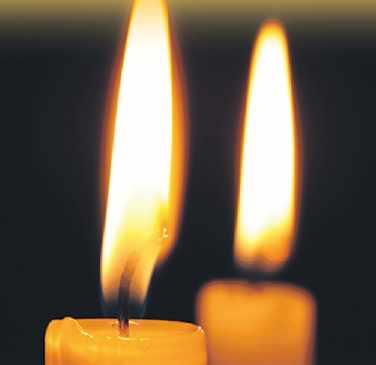
Landmark study reveals how Jewish identity is shaped at the Shabbat table

‘Death to IDF’ rapper targets London police
“Death to the IDF” rapper Pascal Robinson-Foster has launched another incendiary on-stage rant, this time calling for “armed resistance” against “the f***ing London Met”, writes Lee Harpin.
In comments that are certain to pile pressure on police to finally act against the group, the lead singer of Bob Vylan took aim once again at the IDF, but also targeted his hate at London’s Metropolitan Police and the New York Police Department.
To cheers from fans during a performance in Spain, he said his band was in favour of “armed resistance” against “these arms of the government”, before adding: “We want to make that explicitly f***ing clear.”
Online footage of Robinson-Foster’s remarks was put on Instagram by a user named celebrities4palestine, where the call for “armed resistance” was openly welcomed by those who commented online.
“So damned proud of all these brave
people standing up and saying ‘No, we will not be silenced, we will not condone genocide’, wrote one person. Another said: “Free Palestine by all means”.
Dressed in his now trademark shorts, white socks and white trainers, a topless Robinson-Foster is filmed at the gig declaring: “We are pro-Palestine and we support the right to armed violence, because we ain’t no f***ing pacifists...
“We understand that in dealing with tyrannical governments, you need to be violent sometimes…. That is why, we see it from Palestine to f***ing England to America…. We see these arms of the government, whether it be the IDF, whether it be the f***ing London Met, whether it be the NYPD.”
He goes on: “We see them world over with their guns into our backs, their knees on our neck… So we we are for armed resistance. We want to make that explicitly f***ing clear.”
To loud cheers, he then added: “So down

with Israel and the IDF, and free, free Palestine!” Robinson-Foster added: “Government’s all over the world tell their populations not to be violent, not to encourage violence so
that they can assert violence over you, so that they can act violently towards us.”
Jewish News has approached the Metropolitan Police for comment over these latest violent and hate-filled comments.
The performer infamously chanted, “Death to the IDF” during the band’s appearance on the West Holts stage at the Glastonbury Festival in June.
The band has proceeded to launch further attacks on Israel at other gigs, but had their visas revoked for a planned tour of the United States.
Avon and Somerset Police said earlier this month: “Inquiries continue to be carried out in relation to comments made during a performance on stage at Glastonbury Festival on Saturday 28 June.”
The BBC has apologised for failing to cut its live stream of Bob Vylan’s set at Galstonbury, calling the sentiments expressed “utterly unacceptable”.
Bob Vylan urges the crowd to take up arms against the Metropolitan Police
UK Jewish pride built – not at school or on Israel
Family life and peer-led spaces like youth groups play a greater role in shaping Jewish identity than schools or short-term Israel trips, according to a landmark study that challenges long-held assumptions about continuity, writes Annabel Sinclair.
The Institute for Jewish Policy Research (JPR) has published What Works? The impact of Jewish programmes and experiences on Jewish identity outcomes in the UK, using advanced analysis of 4,926 British Jews.
Commissioned by the Jewish Leadership Council (JLC) as part of its post-7 October Forge the Future plan, the report examines the long-term e ects of Jewish upbringing, schools, youth movements, university Jewish Societies (JSocs) and Israel programmes.
Its findings suggest there is no single route to securing Jewish continuity. Instead, identity emerges from the interplay of multiple influences – with upbringing and experiential settings leading the way.
JPR executive director Dr Jonathan Boyd said: “The findings in this report challenge the notion that any single programme can decisively shape Jewish identity.
“Instead, they point to the cumulative power of multiple, overlapping experiences. Jewish identity isn’t delivered through one-o interventions, even though some experiences – and particularly those encountered at home – are more impactful than others.”
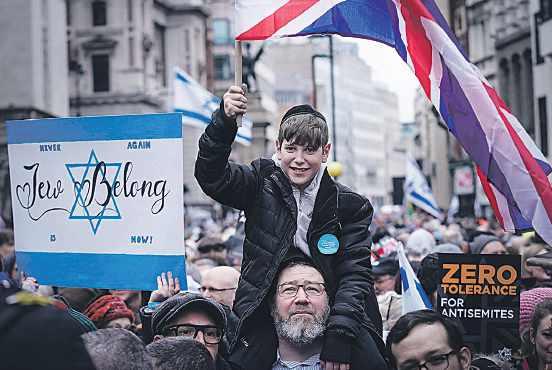
He added: “What matters most is not any single experience, but the way multiple experiences overlap and reinforce one another.”
The strongest predictor of Jewish identity outcomes was childhood upbringing. Children raised in Orthodox or traditional homes were significantly more likely to sustain Jewish life into adulthood, and specific rituals such
as weekly candle lighting were shown to have measurable, long-lasting e ects.
Workstream co-chair and London School of Jewish Studies chair Bill Benjamin said the evidence carried a clear message for families. “If you want your children to be Jewishly engaged, it doesn’t just happen.
“You can’t outsource it. Judaism is, in many
ways, a home-based religion.”
JLC Forge the Future Young People workstream co-chair, Limmud chair and UJS vicechair Carolyn Bogush added: “If we want to ensure that in 20, 30 years’ time we have very engaged individuals, we need to really invest and help new parents. Lighting candles, having Shabbat dinners – that is across the board.”
The JLC commissioned quantitive research as well as qualitative work. Young people who took part in Rosov Consulting’s focus groups echoed the importance of personal experience.
One 25-year-old said: “My youth movement had a huge impact on my identity… setting me up with the kind of networks and connections that I’ve come back to later in life.”
Another, aged 16, reflected: “Going to a nonJewish school has properly strengthened my identity… it made me embrace and keep my faith a lot more than going to a Jewish one.”
The Rosov research, based on dozens of interviews and focus groups with 16–26 yearolds, found while schools and tours provided foundations, it was friendships, role models, and inclusive spaces young people identified as shaping their Jewish journeys.
The JPR report also highlights the enduring power of informal peer-led environments. Participation in youth movements and JSocs was found to have greater long-term influence than Jewish schools.
While schools remain essential for literacy
Shabbat table, not school gates, shapes Jewish future

BY DR DAVID GRAHAM SENIOR RESEARCH FELLOW AT THE INSTITUTE FOR JEWISH POLICY RESEARCH
Jewish educational opportunities should be viewed within a broader ecosystem where home, school, peers, rituals, programmes, community and chance work in concert.
When communities ask, ‘What works?’ in forging Jewish identity, they often chase the next big programme – hoping for a magic silver bullet. Our analysis of JPR’s 2022 National Jewish Identity Survey tells a di erent story. This is that no single experience carries the weight we imagine. Jewish identity is woven from many threads, and the most enduring are spun at home.
At the heart of our study lies a simple truth: Jewish upbringing trumps everything else. Growing up in an orthodox or traditional household emerges as the strongest predictor of outcomes across eight measures – religiosity, peoplehood, values, community engagement, Israel attachment and more. The home environment explains more of the di erences
in adult Jewish identity than any Jewish school, youth movement or Israel programme.
To develop that more practically, we replaced denominational labels with concrete home practices – lighting Shabbat candles, maintaining a kosher home, keeping Shabbat. Though these narrower practices explained slightly less variation than broader upbringing types, they o er actionable guidance. Candle lighting alone influenced seven of eight identity outcomes; a kosher home shaped five. In other words, the ritual heartbeat of home still drives identity long after childhood.
If upbringing is the soil, what about the garden of Jewish programmes? After statistically controlling for background, we examined nine key experiences including Jewish school, youth movement, summer camp, Israel programmes and membership of a university Jewish society (JSoc).
Surprisingly, JSoc proved most impactful, though self-selection at that later life stage likely amplifies the e ect. Youth movement involvement also mattered, especially for Jewish friends, communal engagement and Israel attachment. Jewish schooling had statistically modest long-term influence – mainly on social circles and community engagement
– while short Israel trips yielded only fleeting gains. Cheder attendance and formal Jewish studies showed virtually no lasting impact.
Age added another layer. Comparing 18–to-39 year-olds with those aged 40–to-59, we found home upbringing held more sway among the older group, while programmes fresh in younger memories – Jewish schools, camps, youth movements – carried more immediate predictive power.
This suggests that programmes may plant seeds, but over time the deep roots laid at home are more likely to endure. Nevertheless, we must not overstate this; siblings raised identically often diverge, reminding us that much of what shapes identity remains a mystery.
What, then, should Jewish educators and planners or indeed, Jewish parents, take from these findings? First, recalibrate expectations. No single programme can guarantee strong Jewish identity. Individual temperament, peer networks and random life events lie beyond any curriculum’s or parent’s control.
Second, parents should understand they are the primary Jewish educators and be empowered as such. Home practices are not quaint traditions but foundational experiences with measurable long-term e ects. Investing
in parental training, support networks and resources to enrich Friday nights, kashrut and family rituals may yield deeper dividends than another curriculum overhaul.
Third, continue to cultivate and build on informal, peer-led arenas such as youth movements and JSocs. While schools and Israel programmes remain impactful, these settings deliver higher value or ‘bang for buck,’ and tap into young people’s intrinsic choices about community engagement.
Fourth, resist framing any single experience as a silver bullet. Instead, view Jewish educational opportunities within a broader Jewish ecosystem where home, school, peers, rituals, community and chance work in concert.
Finally, embrace complexity. Jewish identity is endlessly developing from the cumulative interplay of multiple influences.
Rather than isolating individual interventions, foster complementary networks: create pathways linking the home with schools and family education, integrate youth groups into community programmes.
As first century-Talmudic sage Rabbi Tarfon taught, “It is not your duty to finish the work, but neither are you at liberty to neglect it.”
• Dr Jonathan Boyd, page 20
‘Jews Belong’ says the poster – but there’s more to it than meets the eye
built at home Israel tour
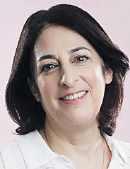

and community-building, youth spaces give young Jews role models and the chance to develop leadership skills.
“JSocs, youth movements, Friday night dinners, seder… these are experiential,” Benjamin said. “A school, a synagogue, a building and an organisation is not a guarantor of future Jewish involvement. It’s family, it’s peers, it’s madrichim. It’s much more relational than it is institutional.”
PaJeS executive director Rabbi David Meyer said: “This valuable research shows that Jewish identity develops through multiple touchpoints – family traditions, camp experiences, youth programs, and community involvement. As many families in our community have discovered, Jewish day school education serves as the foundation that often ties these experiences together, giving children
the knowledge and confidence to fully embrace their Jewish heritage.”
Short-term tours were found to strengthen attachment but were less powerful over time than longer immersive placements.
“The longer you spend, the more likely it is to have an impact on your long-term Jewish identity,” Bogush said. “So, a year programme, and particularly a yeshiva or sem programme, is more likely to have an impact than something like Israel tour.”
Asked what challenged his assumptions, Benjamin pointed to attitudes to Israel among young people. “One thing we’ve heard is that young people want safe and brave spaces to talk about all the complexities around Israel.
Bogush said the need for institutions to adapt was urgent. “People are looking for somewhere where they can express their opinion on Israel or not talk about Israel at all. Creating a Jewish community where all voices can be heard is vital.”
Both warned of a critical gap after university. “The conversation about our young adults and what happens when they leave university is, dare I say, even more important [than antisemitism],” Bogush said.
“In 20 to 30 years’ time, if we want a thriving Jewish community in this country where we have lay leaders and Jewish professionals, we have to be investing in them now. It’s at our peril if we ignore this.”
TV EXEC PEARLMAN NAMED JEWISH NEWS AMBASSADOR
Leo Pearlman, co-chief executive of Fulwell Entertainment, one of the loudest voices against growing antisemitism in the arts since 7 October, has become a Jewish News ambassador.
He joins ITV political editor Robert Peston, who became JN’s first ambassador earlier this year, and will help support the paper’s work and growth.
Fulwell has won countless BAFTAs, Critics Choice Awards and National Film Awards for its work with the likes of One Direction and James Corden before its merger with LeBron Jamesfounded SpringHill Company.
Pearlman was executive producer on the likes of The Class of ‘92, Gavin & Stacey and the Emmy-winning We Will Dance Again, which has

brought the horrors of the massacre at the Nova festival to audiences worldwide.
Pearlman, a non-executive director of newly-promoted Sunderland FC, is also one of the brains behind plans to create one of the largest studios in Europe in the city.
He said: “I am honoured to be taking on an ambassadorial role for Jewish News, which has become the largest Jewish
Jewish school attendance by age band

Jewish youth movement attendance by age band
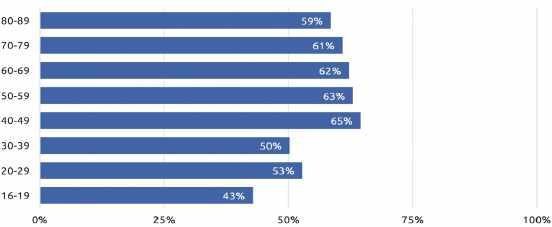

media voice on social media anywhere in the world.
“Since 7 October, Jewish News has stood out for maintaining a centrist position and a balance in its reporting on the Middle East conflict that few others have achieved.
“At a time when our community is under attack from institutions we have long relied upon, and when so many within British Jewry are questioning what the future holds for us in this country, Jewish News has found the necessary equilibrium — standing up, speaking out and being proud of who we are.
“That balance is vital not just for today but for the conversations that will be essential to healing the rifts in our society when this conflict finally comes to an end.”




Carolyn Bogush and Bill Benjamin, co-chairs of the JLC’s workstream
Leo Pearlman
Question: Tell us what type of school(s) you attended. Answer options: A Jewish state school; a Jewish private school; a non-Jewish state school; a non-Jewish private school; other
Question: Which, if any, of the following did you experience growing up? Answer option: Regular involvement in a Jewish youth club or youth movement. Yes/No
Swastika attack only reinforces our pride
A Chabad rabbi in Bournemouth whose house was daubed with a swastika during Shabbat has told Jewish News the antisemitic hate only strengthens his resolve to find new and meaningful ways to boost Jewish pride within his community, writes Daniel Sugarman.
Rabbi Benzion Alperowitz published a video on Sunday of himself next to the Nazi symbol, adding: “Some cowards visited our home on Friday night and decorated it with this symbol.”
Police and CST have been informed, and local volunteers from the community removed the offensive graffiti.
Rabbi Alperowitz said when he and his wife saw the graffiti “of course we were shocked at what we saw and we are concerned about that this meant about our family’s safety.
“However, seeing as there was no immediate danger, we resolved to not let this affect our Shabbat or let this instil fear in our children. We continued on to shul and went about our day as we regularly would, in the joyful spirit of Shabbat.
“Our kids were a little afraid as they saw our shock, but we took the opportunity to speak to them about Hashem who runs the world and how we are always in his hands.
“They seemed to be reassured ... and I heard my daughter telling other children in shul how Hashem is always watching over us so there’s no reason to be afraid.”
Rabbi Alperowitz, who was born in Bournemouth, is an associate rabbi at the city’s Chabad, which was started many years ago by his parents, Rabbi Yossie and Chanie Alperowitz.
“Bournemouth is a wonderful place,” he said. “While we are deeply saddened by

what happened, I do not believe this incident reflects the vast majority of people here. Over the past 24 hours we’ve been overwhelmed with kindness and support from our Jewish community and nonJewish neighbours and friends.
“It’s this warmth and unity that truly represents our beautiful town. This incident cast a shadow... but it will not define us. Bournemouth’s true character is kindness, unity and light and we all have to make sure it shines brighter than ever.”
As well as a synagogue, Chabad of Bournemouth runs a wide range of initiatives, including supplying kosher food through a deli and restaurant, adult education programmes and a children’s Hebrew school.
Asked whether he felt the swastika incident might lead to the Chabad limiting its activities, Rabbi Alperowitz replied: “On the contrary – this only strengthens our resolve. We have a responsibility to do
even more, with greater Jewish pride and confidence. When faced with darkness, we must add more light. Limiting our activities would hand a win to those who wish to scare us. We will not allow that.
“Instead, we will find new and meaningful ways to boost Jewish pride within our community.”
Praising the police, he added: “[They] have immediately stepped forward to offer support and reassurance, coming around multiple times to check in and increasing patrols in the Jewish areas.”
The incident came as police investigated an attack on a teenage Jewish boy on Saturday in which the boy sustained a minor injury from an air rifle.
Detectives are seeking the occupants of a vehicle “to establish the full circumstances of the incident” which they said is being treated as a hate crime and are urging anyone with “information or concerns” to speak with an officer.
AUSTRALIA EXPELS IRANIAN ENVOY
AS IRAN TIED TO JEWISH ATTACKS
The Australian government is to expel Iran’s ambassador and legislate to list Iran’s Islamic Revolutionary Guard Corps a terror organisation after intelligence services said Iran was behind attacks on Australian Jews, writes Daniel Sugarman.
Prime minister Anthony Albanese said Australia had witnessed “a number of appalling attacks” against its Jewish community since the events of 7 October 2023.
“I have made it clear that these sorts of incidents have no place in Australia, and that I wanted ASIO (the Australian Security Intelligence Organisation) and the AFP (Australian Federal Police) to investigate as a priority,” he added.
“ASIO has now gathered enough credible intelligence to reach a deeply disturbing con-
clusion – that the Ira nian government directed at least two of these attacks. Iran has sought to disguise its involvement, but ASIO assesses it was behind the attacks on the Lewis Continental Kitchen in Sydney on 20 October last year and the Addas Israel synagogue in Melbourne on 6 December.”
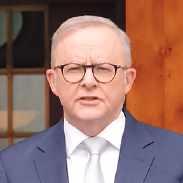
Apart from the two incidents directly mentioned by Albanese, Burgess said it was “likely” the Iranian regime was behind further attacks on the Australian Jewish community, saying ASIO had “investigated dozens of incidents”.
Both properties were targeted by arsonists.
ASIO chief Mike Burgess said his organisation had uncovered “a complex web of proxies” and a “layer cake of cut-outs” used by the IRGC in attempts to disguise its role.
Burgess added: “Iran and its proxies literally and figuratively lit the matches and fanned the flames… there’s a direct connection the IRGC are directing, through a series of cut-outs, people in Australia to undertake these crimes.”
Australia has suspended operations at its embassy in
MP URGES POLICE TO HALT MARCH
A Southend MP and council leader have called on Essex police to halt a planned march through the area on Saturday by anti-Israel demonstrators, citing language promoting the event which refers to the city as a “horrific Zionist area”.
Bayo Alaba, Labour MP for Southend East and Rochford, said he was “urging the police to prevent this event from taking place, as it seems this protest may be carried out in bad faith and used to intimidate residents.
“The right to peacefully protest is a fundamental principle of our democratic society, and it should never be misused to promote hate.”
The march has been advertised in affiliation with a variety of groups, including Southend Action for Palestine, Palestine Pulse, London Irish Brigade and both the Peterborough and Cambridge branches of the Palestine Solidarity Campaign – although not the Southend PSC branch.
Whatsapp messages sent along with the flyer included
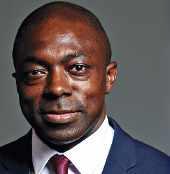
Tehran and removed its diplomats to a third country. Iran’s embassy in Australia has been closed, with ambassador Ahmad Sadeghi reportedly given seven days to leave.
Executive Council of Australian Jewry (ECAJ) president Daniel Agion said: “The Australian Jewish community is deeply grateful to the men and women of the AFP, ASIO, and state police forces for their single-minded focus and dedication to investigating these attacks, bringing the perpetrators to justice, and protecting all Australians from terrorism.
“These attacks instigated by the Iranian regime are an attack on our nation and sovereignty. As Australians, we are outraged that a foreign actor perpetrated acts of terror on our soil.”
• Editorial comment, page 18
the sentence: “Southend is a horrific Zionist area, and if uou [sic] came to the last demo, you will have already witnessed this.” It is unclear which individual or organisation shared the flyer via Whatsapp with this language.
Alaba’s statement referenced this language, saying: “I must be clear, I am not in support of this protest going ahead. I am appalled by the description of Southend as a ‘horrific Zionist area’.
“It is crucial that the Jewish community feel safe in the city they call home.”
Southend on Sea city council Labour leader Daniel Cowan also condemned the planned march, saying: “I have asked Essex Police for this to be stopped.
“This is advertised as a peaceful protest yet is being shared with hideous, racist language describing our city.
“I contacted Essex police, expressing my belief that for some the “protest” is an antagonistic stunt designed to harass and intimidate.”
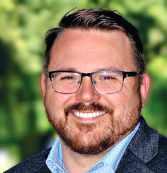
Brighton’s 7/10 memorial moved
A Brighton memorial to victims of 7 October is to be relocated after 21 months in a public square amid plans for the area to be relandscaped and replanted.
The memorial in Palmeira Square was set up a month after the attack and has featured a nightly service and more than 550 dedications.
Visitors to the site have included Chief Rabbi Mirvis, Board of Deputies president Phil Rosenberg, and Progres-

sive Judaism leaders Rabbis Charley Baginsky and Josh Levy, but the memorial has been vandalised more than 50 times and completely destroyed five times before being lovingly rebuilt.
Incidents include the memorial book being slashed as well as faeces smeared across it. Antisemitic leaflets have been left nearby, and mourners have been harassed. However, other local residents have left flowers, stones, toys and candles for the victims.
The memorial was created by a team of volunteers including Adam Ma’anit and Heidi Bachram.
Ma’anit’s cousin, Ma’ayan Idan, was murdered on 7 October by Hamas and her father Tsachi was taken hostage and later killed.
Rabbi Alperowitz next to the Nazi symbol daubed on his home
Bayo Alaba
Daniel Cowan
Anthony Albanese
The Brighton memorial
European campuses rife with antisemitism
A new report on antisemitism at universities across Europe shows a “normalisation of antisemitic narratives… anchored in almost all countries under the guise of anti-colonial, antiimperialist or human rights narratives”, writes Adam Decker.
The report, A climate of fear and exclusion: Antisemitism at European universities, was co-written by B’nai B’rith International, the German think tank Democ and the European Union of Jewish Students. It analyses the situation for Jewish students on campuses in nine countries, including the UK, Germany, France, Belgium, Italy and the Netherlands.
Examples of techniques used by so-called “anti-Israel” groups include “threats and physical violence directed towards individual Jewish students or staff ”, with multiple examples provided of Jewish students targeted or physically assaulted, “calls to violence and legitimisation of violence as appropriate protest action”, and “solidarity with Hamas and its violent massacre on October 7, 2023, portrayed as “liberation” or “righteous resistance”.
In multiple countries, student groups driving the aggression and protests were linked to Palestinian terrorist organisations – Samidoun, for example, is connected directly to the



Popular Front for the Liberation of Palestine (PFLP) – while “a recurring element is the involvement of Communist groups and party branches”. Across all the countries, the report also identified how “the prominent participation of professors in demonstrations, or their vocal support and unequivocal solidarity with the protest movement, has further contributed to an environment of tension and exclusion of Jewish students.”
The report also sets out recommendations for higher education institutions, including the adoption and use of the IHRA definition of anti-
semitism, the need for a clear reporting procedure for victims of antisemitism, building trust with Jewish organisations and Jewish students and stepping up security, including the vetting of groups allowed on campus.
In her foreword to the report, European Commission coordinator on combating antisemitism and fostering Jewish life Katharina von Schnurbein said: “Debate, even heated disagreement, protest and other political manifestations are a part of university life. An important part.” Yet, she adds, “protest should never veer into hatred, ostracization, discrimination and even violence.”
Democ co-executive director Grischa Stanjek said: “What we are seeing on individual campuses are not isolated incidents of student protest. The documentation gathered in this report makes it clear that we are dealing with highly coordinated, transnational networks that operate as part of a global movement.
“They strategically disguise an antisemitic agenda in the language of human rights to gain legitimacy. University leaders are making a grave mistake if they treat these events as local flare-ups instead of what they are: calculated manifestations of a global, anti-democratic campaign.”
We are delighted to invite you to our


FOUR HELD OVER FACTORY ATTACK
Police have arrested four people for criminal damage after a new anti-Israel direct action group attacked a defence factory in Wolverhampton, claiming the site had “involvement in the F-35 programme being used in the genocide against Palestinians”.
Police said a number of individuals had entered a manufacturing building and gained access to the roof. Significant damage was caused to sky lights and solar panels.
In videos shared on social media, “Palestinian Martyrs for Justice” used a vehicle to ram the gates of the Moog defence and aerospace company facility in Staffordshire, scaling the roof and attempting to cut holes through it.
One video shows sharp electrical tools being used to attempt to penetrate the roof, with a female narrator saying: “What we are trying to do now is to cut down into the workshop to destroy the machines that are being used to make parts for F-35 fighter jets.”
The techniques used by “Palestinian Martyrs for Justice” appear extremely similar to those used by Palestine Action prior to its proscription as a terrorist organisation last month.

With Guest Speaker Brendan O’Neill journalist, author and champion of Israel
Wednesday 17th September 2025 3pm-5pm
Venue: North West London
Price £20 per person
RSVP: 020 8732 6143 or email kklevents@kkl.org.uk

Links to Palestine are said to be rife
Mayor’s funding boost for Anne Frank Trust
The Anne Frank Trust UK is among 20 grassroots projects chosen by London mayor Sadiq Khan to receive £875,000 in investment to fight hate crime, intolerance and extremism in all its forms in the capital, writes Lee Harpin.
Part of the mayor’s record £16m Shared Endeavour Fund, this latest phase of funding aims to support some 50,000 Londoners across every borough to recognise and assess intolerant, hateful and extremist messages and empower them to challenge them safely.
Some 190,000 Londoners have already benefited since the scheme was set up in 2020.
The Anne Frank Trust UK has been awarded the funding to continue delivering awareness-raising sessions focusing on the impact of antisemitism and Islamophobia, helping young people understand how this prejudice can manifest and the harm it causes.
Founded in 1991 by friends of Otto Frank, the trust uses the life and legacy of Anne Frank to equip young people to recognise and

challenge antisemitism and all forms of prejudice.
Khan said of the funding: “Hate crime, extremism and intolerance has no place in London. That’s why I’m continuing to fund grassroot community groups which will benefit Londoners – giving them skills they need to fight extremism and stand up to hate.
“We are living in increasingly divisive and uncertain times and I
know the worry and concern that this is having in our communities.
“That’s why I’m committed to working in close partnership with communities and the police to ensure everyone in the capital feels, and is, safe and welcome.
“I will always champion London’s diversity as our greatest strength and work to shape a city where people understand and respect one another.”
Legal experts dismiss Farage’s migrant plan
Two of the UK’s most respected Jewish lawyers have joined criticism of Reform UK leader Nigel Farage’s plan to control migration by withdrawing from longheld human rights protections as “legally extreme” and fundamentally misleading, writes Lee Harpin.
Leading human rights barrister Adam Wagner KC and legal expert Joshua Rozenberg joined the lengthy list of those responding negatively to Farage’s announcement on Monday that if elected into government, his party would repeal the Human Rights Act, leave the European Convention on Human Rights (ECHR), and disapply the 1951 Refugee Convention and UN Convention against torture.
Wagner and Rozenberg highlighted the fact that British common law also contained a lot of the rights reserved for those attempting to claim asylum or remain in this country, including the right to a fair trial, freedom of religion and the right not to be tortured.
Rozenberg said: “Even if the UK were to leave the Human Rights Convention, judges would still apply Common Law principles, and


they may well find ways of blocking the sort of extreme idea of sending people back to countries where they are likely to face torture or death, but Mr Farage seems to say it’s a price worth paying.”
He noted Farage was pushing the idea of a British Bill of Rights, but after the Reform leader unveiled his plans at a press conference, Rozenberg said he had “not gone into much detail about how that would work” at the press conference.
Legal commentator Rozenberg also said any legislation proposed by Reform would take at least a year to proceed through parliament, and would almost certainly come under challenge in the Lords, where Far-
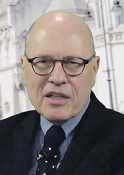
age’s party, even if winning the next election, would not have a majority.
Wagner was also scathing of Farage’s plans. “A lot of the rights contained in the European Convention come from British common law: the right to a fair trial, freedom of religion, and the right not to be tortured,” he said. “Farage may believe repealing treaties clears the path for mass deportations, but UK courts are not bound to ignore centuries of legal tradition.”
Farage announced plans for his Illegal Migration (Mass Deportation) Bill alongside ally Zia Yusuf and claimed the boats would stop “within days” as a result of Reform UK’s policies.
7/10 SECOND ANNIVERSARY MEMORIAL
The Anne Frank Trust recently appointed Dan Green as its new chief executive, following the retirement of Tim Robertson after seven years in post.
Other organisations receiving funding include the West Ham United Foundation, to deliver antiracism training alongside criticalthinking workshops in schools, giving Londoners aged 11-to-16 the skills to intervene safely when they spot hate or prejudice.
The latest phase of the fund is aimed at bringing together communities and counter hate, such as Islamophobia and antisemitism, and far-right and Islamist extremism threats, by teaching young people how to identify and reject false and hateful narratives.
It will also tackle online conspiracy theories and misinformation, as with the disorder across the country following the Southport tragedy last year, teaching young people how to spot and factcheck radical narratives online and promote shared values to those at risk of radicalisation.
Organisers of a vigil marking two years since the Hamas attacks on Israel are hoping to attract thousands of community members and allies.
Representatives from nearly 30 Jewish communal organisations will stand together in solidarity on Sunday 5 October to honour the lives lost and affected in the terrorist assault, and to call for the release of the 50 hostages still held in captivity.
Organisations at the memorial, media partnered with Jewish News, include UJIA, the Hostages and Missing Families Forum UK, JW3, UJS, Magen David Adom UK, World Jewish Relief, the United Synagogue and Progressive movements.
Chair of the event Henry Grunwald, a founder of the Jewish Leadership Council and a former president of the Board of Deputies, said: “It is shocking to believe that, two years on, Hamas would still be holding 50 hostages, perhaps 20 still alive.”
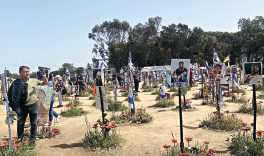
SEPHORA DROPS HUDA BEAUTY FROM PROMO
Sephora has removed Huda Beauty from its upcoming autumn ‘Experts’ campaign following uproar over antisemitic conspiracy theories promoted by brand founder Huda Kattan, writes Annabel Sinclair.
The Iraqi-American influencer, 41, posted a TikTok video in July accusing Israel of orchestrating the two World Wars, the 9/11 terror attacks and the 7 October Hamas massacre. The video, viewed widely before its removal for breaching TikTok rules, also repeated other wild conspiracies.
Sephora, owned by luxury group LVMH, initially said it was “reviewing” the matter and stressed that “promoting hate, harassment or misinformation does not align with our values”.
Industry outlet Puck later reported Kattan has been dropped from the high-profile September campaign, which will now spotlight artists including Gucci Westman, Patrick Starr and Mario Dedivanovic.
“Kattan was set to be a big anchor,” journalist Rachel Strugatz reported. “Her absence will speak volumes.”
The Anti-Defamation League described Kattan’s remarks as “irresponsible and dangerous”, warning that they recycled “some of the oldest and most pernicious antisemitic tropes.” Jewish advocacy groups in the
UK and US have urged retailers to cut ties with Huda Beauty entirely.
Kattan later attempted to defend herself, claiming her comments had been “misinterpreted” and were directed at Israeli policy rather than Jews or Judaism. She accused critics of leading a “defamation campaign”.
Her Dubai-based beauty empire, valued at nearly £900m, remains stocked in major UK retailers including Boots, Selfridges, Harrods, Cult Beauty and Harvey Nichols.

Adam Wagner KC and Joshua Rozenberg. Main image: Nigel Farage
Nova massacre memorial
Still from the now-deleted TikTok video in which Huda Kattan claimed Israel was “behind every world war”, 9/11 and the 7 October attack
Queen Camilla addressing an Anne Frank Trust event

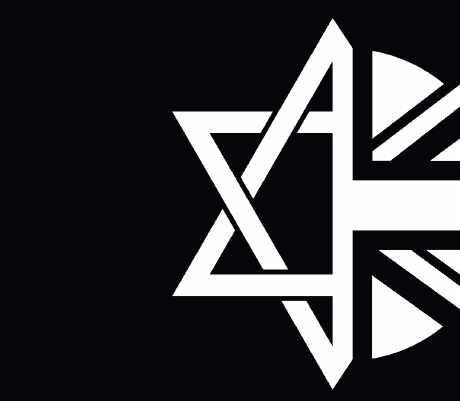

Aliyah: building dreams and saving tax
• Tax-efficient investing before and after Aliyah
• Tax-efficient income after 10-year tax-free period
• Receive your entire pension pot tax-free
• Specialist portfolio management for Olim
• No Inheritance Tax (for non-UK-situated assets)
We are seasoned experts in providing long-term financial planning advice for those making Aliyah. Scan the QR code to read more
With investing, your capital is at risk. Tax treatments are subject to individual circumstances and are subject to change.








Beyond politics: saving lives knows no borders
For more than 90 years, World Jewish Relief has been synonymous with the Jewish community’s global humanitarian response – from rescuing 65,000 Jews from Nazi Europe as the Central British Fund in 1933 to providing employment for today’s refugees in Britain and life-saving aid in Ukraine. But in the last year, the charity has taken a step few could have imagined, writes Annabel Sinclair.
“We distilled it down to a set of simple humanitarian prin ciples,” says chief executive Paul Anticoni. “We’re a Jewish humanitarian agency born out of a desire to help communities in crisis. We felt we were doing as much as we could to assist a crisis in Israel, and we felt some responsibility within our humanitarian capabilities, because we could do something, the responsibility increases.”
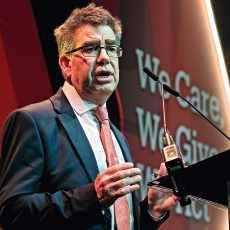
For decades, World Jewish Relief had not worked directly in Israel. Instead, it focuses on crises elsewhere, supporting Jewish communities in Eastern Europe, responding to disasters and more recently leading the UK’s Jewish response to Russia’s invasion of Ukraine. That changed after 7 October, 2023. “The needs of Israelis post-7 October were unfathomable, incomprehensible,” Anticoni recalls. “There was no way we could not be responding to needs in Israel.”
Within days, WJR diverted balance-sheet funds to support the Israeli Trauma Coalition. But the organisation also began to confront another reality: the “growing challenges within the Palestinian community” in Gaza. “As an organisation which is built around a principle of humanity, if there’s need we feel a responsibility to see if we could, in some way, reduce that unmet need,” Anticoni explains.
The decision was not taken lightly. Anticoni went directly to Israel’s authorities for guidance. “We went to the president of Israel’s office to understand what Israeli policy was, and it was a clear policy to help trusted

partners… to assist Palestinians that needed support. Israel was quite open about that responsibility.” From there, WJR consulted COGAT, the Israeli defence body overseeing Gaza crossings. It identified an international partner – unnamed for security reasons – that could meet WJR’s strict due diligence standards and was already operating two mobile field hospitals independent of Hamas-run structures.
“I found a partner that can deliver service. I’ve got funding that means I don’t need to touch anybody’s donation. It’s money we’ll never get in any other shape or form, but it’s delivering services to Palestinians,” Anticoni points out.
The initial focus was maternity and neonatal care – “almost a no-brainer in terms of primary needs” – but the work quickly expanded.
Since mid-2024, those field hospitals have delivered care on a remarkable scale. “Over that 12-month period, delivering something like 3,000 babies… a provision of support of 35,000 children suffering from various different nutritional defects… providing support to a couple of hundred kids in a neonatal unit,”
Anticoni details. The partner also became involved in targeted vaccination campaigns for young children, alongside wider provision of medicines and medical supplies.
More than 3,000 were babies born in Gaza with WJR help over the past year that might not have happened otherwise.
The work has faced immense challenges: chronic shortages of food, medical supplies and fuel. Says Anticoni, noting recent improvements thanks to limited aid flows: “Hospitals we’re supporting… depend on something like 3,000-4,000 litres of fuel a day. We were down to an absolute bare minimum.
“We’ve added a component now… supporting IsraAID, who are procuring medicines and medical supplies in Israel, able to provide them cross-border to the hospitals that we’re supporting as well. So actually, a double whammy – supporting the hospitals to deliver services, supporting IsraAID to provide medical supplies.”
Anticoni acknowledges the sensitivity of the move. “We wouldn’t do something and hide it, because that’s just not how we work. So, we had to tell people what we were doing, and we broadcast it to our supporters… done
with the permission of Israeli authorities at the highest level, targeting mothers and babies in Gaza.”
Crucially, the initiative has won broad support across the community – from the Chief Rabbi’s Office and United Synagogue to Progressive Judaism and JW3.
“I’m immensely proud that those communal organisations said it’s the right thing to be doing. And that, I think, really espouses our Jewish values in the bravest and most courageous, but high-risk ways,” Anticoni says.
For him, the real measure of success remains concrete: “A life saved and a life changed, a baby that survives, a mother that gives birth safely in that context, under enormous trauma, is important.
“Over 3,000 were babies born in Gaza with our help over the last year – that might not have happened otherwise. But I think we have a beautiful responsibility to be doing what we can to save that life.”
The charity continues to provide trauma support in Israel while also delivering lifesaving services for innocent Palestinians caught up in Gaza, alongside leading Jewish humanitarian efforts in Ukraine, Ethiopia, Haiti and beyond.
“We can’t be everything to everyone everywhere, but if we can save a life and we can do that effectively and safely, then we feel a responsibility to try,” Anticoni says.
“At a time when our community is beating itself up about how divided we are, actually we should also be proud that we, as a community, are supporting organisations such as World Jewish Relief.”

40 GAZA STUDENTS TO ARRIVE IN UK
Around 40 students from Gaza will arrive in the UK over the coming weeks to begin funded university scholarships, it has been reported, writes Lee Harpin.
Nine will arrive from the war-torn region as part of the UK governmentfunded Chevening scheme, which allows international students to study for one-year master’s degrees.
Others will arrive on fully-funded scholarships through other private schemes, which Home Secretary Yvette Cooper has approved. Israel will still have to grant permission for each individual to leave Gaza. And in order to obtain a UK visa, each applicant
must provide a photograph as well as their fingerprints.
Reports by the BBC suggest some of the Gazan students will have their biometric tests carried out in another country before travelling to the UK to begin university.
The centre used by the UK to carry out these tests in Gaza was shut after the 7 October Hamas terror attacks.
A Home Office source described the plan as “complex and challenging”, but said the home secretary had made it “crystal clear” she wanted the students to be able to take up their places in the UK.
BBC News spoke to a 27-year-old doctor,
offered a place to study global health policy at the London School of Economics, who said: “I was highly emotional and so happy to be awarded the scholarship.
“It gave me the energy to keep working. But most of the time, I avoided talking about it, because of the indefinite uncertainty.”
Mahmoud is reportedly one of nine students in Gaza who received emails from the UK government informing them it was working to facilitate their evacuation.
Originally from Beit Lahia in northern Gaza, Mahmoud said he dreamt of studying in the UK from a young age.
When the war broke out, he volunteered
in the plastic and reconstructive surgery unit at the al-Shifa hospital before working on temporary wards across Gaza. He said he hopes his degree will one day help to rebuild the territory’s fragile healthcare system.
Mohammed, 25, is reportedly another Chevening scholar who has been offered a chance to study for a masters at the University of Glasgow.
“This opportunity is not an escape. It is a responsibility to study, to learn and to return stronger for them,” he told the BBC.
“What I learn in Glasgow will not stay in lecture halls. It will be carried back to serve people who need it.”
Above: A child receives food in Gaza City; inset, Paul Anticoni
Doctors in Gaza dealing with patients
Faiths come together to celebrate and heal
Jews and Muslim unite at first Interfaith Wellbeing Festival
London’s first Interfaith Wellbeing Festival drew crowds to Paddington Recreation Ground on Bank Holiday Monday, with Jewish and Muslim groups at the forefront of a lively celebration of diversity, health and friendship, writes Annabel Sinclair.
The free family-friendly event was co-produced by the Faith & Belief Forum and Maccabi GB, with partners including Mitzvah Day, NishkamSWAT, The Delicate Mind, Salaam Peace, Made in Hackney and Faiths in Tune. Backed by Dangoor Education, the day featured a broad line-up of activities designed to promote physical, emotional, spiritual and social wellbeing.
Visitors dipped in and out of a packed programme including football skills sessions with QPR FC; yoga, meditation and reflection zones; workshops on community cohesion and live music from the London Male Jewish Choir, Shumei Taiko drummers and other multicultural performers.

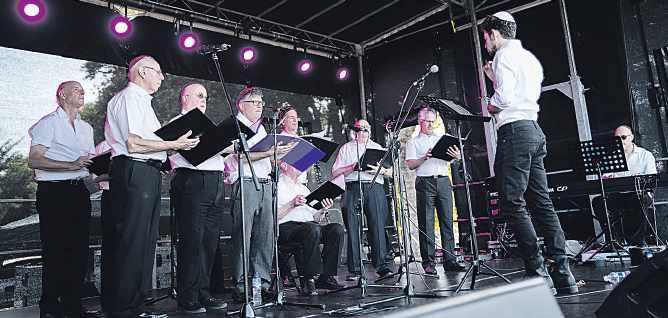
A diverse food court offered kosher, halal and vegan dishes, reinforcing the inclusive spirit.
Maccabi GB chief executive Ashley Lerner said: “I don’t think there’s ever been a time when interfaith and wellbeing have been as needed as today. The sun shone on us, and it’s been an incredible day full of incredible communities.”
David Dangoor, whose family foundation was a lead supporter, underlined the Jewish role in making it happen: “This is about showing that communities can come together, celebrate diversity and do something positive at a time when the world can feel so divided. The Jewish community has always believed in the importance of working with others and today was a shining example of that in action.”
Maccabi GB president and Faith & Belief Forum trustee Michael Ziff added: “It’s been incredible to see


people of all faiths mixing, smiling and learning from one another. That’s what London does best. The best way to build bridges is by actually spending time together, and that’s exactly what we’ve seen here.”
Workshops ran throughout the day, with Mitzvah Day’s Laura Marks reflecting on how shared social action has become a bridgebuilder for years: “We all want to give back and meet people from different backgrounds, but it’s not easy to knock on the door of your local mosque or church.
“Events like this give people that chance – to connect, to share and to do something good together.”
Muslim-led organisations also played a central part. Haijia Saidat Oketunde, representing her community group, said: “Interfaith allows us to respect one another and create peace and harmony.
“Today has been perfect – we’ve
made connections, built friendships, and that’s the key.”
Elsewhere, Jewish wellbeing charity J-Hive fielded questions from Jewish and non-Jewish visitors on supporting employees with inclusivity training. Founder Daniel Levy said: “If organisations run Islamophobia training or other sessions on faith inclusion, Jewish needs should sit within that mix too. Days like this help get that message across.”
Other highlights included a creative arts zone for children, a panel on faith and community wellbeing hosted by the Faith & Belief Forum and interactive workshops from mental-health mentors and interfaith chaplains.
As one panellist noted, “Your neighbour is your world. That’s where building peace begins.”
Local residents stopped by between festival sessions and the nearby Notting Hill Carnival. Some


lingered in the shade for mindfulness activities, while others joined football kickabouts and listened to live drumming and choirs.
Organisers estimated that around 1,000 people took part over the course of the day. One summed up the mood: “The venue worked brilliantly, the atmosphere was warm and the feedback has been hugely positive. There’s every reason to believe this could become an annual event.”

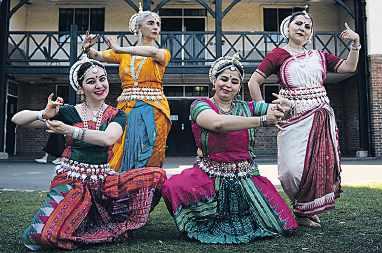
London Jewish Male Choir performing at London’s first Interfaith Wellness Festival on Monday
Music in action from the Shumei Taiko drummers, face painting, discussion groups and performers showcasing traditional dance were all part of the festival line-up
A dance tribute to the tropics
Spectators enjoying the show
Exotic costumes played a part



Windermere Boys return to ‘paradise’, 80 years on
Four of the original Windermere Boys – a group of orphaned Holocaust survivors flown to Britain in 1945 to begin new lives –have unveiled a memorial garden to honour the 80th anniversary of their arrival in the Lake District, writes Michelle Rosenberg.
Their story has been told many times, most famously in the BBC/Warner Bros drama The Windermere Children
Known as ‘The Boys’, 732 young survivors of Nazi concentration camps, boys and girls, were brought to Britain in five groups.
The largest, comprising 301 children, were flown by RAF Stirling bombers from Prague to Calgarth Estate, Windermere, on 14 August 1945 to be welcomed by the local community and begin rebuilding their lives in what they called ‘Paradise’. Almost all had lost entire families in the Holocaust.
Arek Hersh, Harry Olmer, Jackie Young and Bela Millan, now in their late 80s, returned for the commemoration organised by The Lake District Holocaust Project.
can never have been such a change in circumstances for a group of children who had come from ‘hell to paradise’.”
Angie Cohen, chairman of the ’45 Aid Society since 2015, whose late father, Moishe Malenicky, was one of The Boys, said the garden would have made him “enormously proud that he hasn’t been forgotten and their story hasn’t been forgotten”.
She added: “On this day in 1945, 300 embers were plucked from the ashes of the Holocaust and arrived in Windermere. Here each ember was nurtured until it transformed into its own self-sustaining flame. I am of the second generation, who, along with many others like me, do not have the words to express my enormous appreciation to Windermere for giving my father the opportunity to experience their humanity and put him on a safe path.

They were joined by members of the Second Generation of the 45 Aid Society –children of The Boys – who flew in from all over the world to continue their parents’ mission of remembrance and education.
Survivors and families walked the estate, now the site of the Lakes School, which plays a prominent part in keeping the story of The Boys alive and regularly host Boys who return each year to share their stories.
The day saw the unveiling of a powerful new memorial garden at Lakes School, donated by Trinity Catholic School on part of the original Calgarth site. At its heart is one of the UK’s largest Magen David designs, a lasting symbol of survival and hope.
Lake District Holocaust Project director Trevor Avery, said: “This gathering marks the 80th anniversary of the arrival of The Windermere Children to the UK.
“After suffering unimaginable horror during the Holocaust they came to a place one of them described as being ‘built for the Gods’. There
“At the ceremony I spoke to locals and to my amazement they do not refer to this project in the past tense. As I teach my children and grandchildren of my father’s story, so do they teach their younger generation of their assistance in helping the Boys – not as a history lesson but as a life lesson, of how to be, always.”
Mark Dichte, son of Abe Dichter, who flew from Israel for the event, said: “May the community and their cherished work be blessed.”
Belan Millan, who was three years old when she arrived in England, said no one told them “we’d been liberated”. She added: “I think that made it more difficult for us because nobody had told us. Gradually, we settled down and we understood that we were going to be given proper food to eat, but we had no explanations. We’d never been in a family situation. We grew up in the camp; we were there for two years, just the six of us.
“There was no provision for us because no one believed young children would survive –we were miracle children in a way.
“They wanted to separate us, like the older children. We thought, ‘No, we’re not having this.’ We’d been together for two years… we were like one person.”


Austrian-born Jackie Young, aged 83, said both his parents were killed in Belarus and that he found out only two years ago who his father was – “my mother and father were on the same transport to a place in Belarus… you either arrived dead in a gas van or were shot when
you arrived. I thought I was just a regular north London Jewish kid, then I got the shock at age nine that I was adopted. My adopted grandmother told me I was from Austria, which came to me in my teenage years. My life changed from that time, searching for my past.”
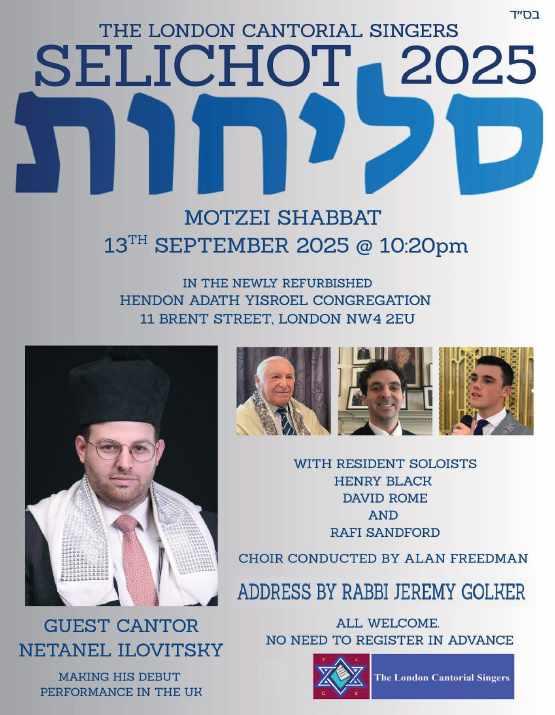
The Windermere Children memorial garden is unveiled. Pic: photographybyward.co.uk
Visitors admiring the memorial garden’s Magen David centrepiece
Pupils prove their class
It was a day of pride and celebration across the community last Thursday as thousands of Jewish students picked up their GCSE results – with schools reporting record-breaking achievements and pupils securing outcomes far above national averages, writes Annabel Sinclair.
At JFS, the school’s largest Year 11 cohort yet secured outstanding outcomes, with 53 percent of all grades at seven or higher, more than double the national figure of 22 percent. The proportion of Grade 9s also rose to 17 percent, up from 13 last year, and 13 pupils achieved eight or more nines.
Headteacher David Moody said he was proud of the tenacity shown by students and praised the kindness and support they offered each other. He also thanked staff, calling them “a brilliant group of people”.
At Hasmonean High School, the girls’ school saw 60 percent of grades at 7-9 and 95 percent at four or above, with almost a third of pupils achieving eight or more top grades.
The boys’ school reported 47 percent at 7-9 and 83 percent at four or above, with more than one in five securing at least eight high marks.
Girls’ school headteacher Alice
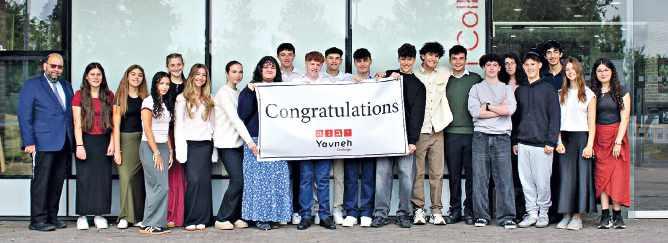
Lucas said she was delighted for pupils, and “looking forward to great things from this talented year group”.
Boys’ school headteacher Miriam Langdon praised the dedication and hard work of students and highlighted the “strong partnership with parents” that had enabled them to flourish.
Hasmonean menahel Rabbi Jeremy Golker said pupils had shown it was possible to combine outstanding academic results with Torah learning and communal leadership, while Trust CEO Andrew McClusky described the students as “leaders
with a moral compass in an everchanging world”.
At JCoSS, students also celebrated an exceptional year. Nearly half the results (48 percent) were Grade 7 or higher, including 28 percent at Grade 8 or 9, while 93 percent were 4 or above. Several students had extraordinary individual success, with some awarded nine or ten Grade 9s.
Headteacher Dr Melanie Lee said she was “immensely proud” of the determination and resilience shown, praising teachers and parents for their support.
PROOF THAT EXAM MARKS DON’T MAKE THE MENSCH
Familiar faces in the Jewish community look back at their GCSEs (and O-levels)
Richard Ferrer – Jewish News editor (so ancient he sat O’ levels): Bs in English and drama and two Cs.
Daniel Sugarman – Jewish News deputy editor:
5 As and 5 Bs.
Justin Cohen – Jewish News co-publisher:
1 A*, 3 As, 4 Bs, C.
Phil Rosenberg – Board of Deputies president:

6 A*s in languages and science, 4 As in English, history, and maths.
Rabbi David Mason – CEO, HIAS+JCORE:
3 As at O’level and 6 As at Scottish highers.
Sandy Rashty – News editor at Sky:
1 A*, 7 As, 2 Bs.
Josh Glancy – Sunday Times associate editor:
8 A*s, 2 As – but not, to his dismay, in Jewish studies.
Rabbi David Meyer – PaJeS chief executive:
A mix of As, Bs and Cs at O’ level.
Yehuda Fink – StandWithUS UK:
3 A*s, 6 As, 2 Bs and 2 Cs – (proudest of her A in maths).
Laura Marks – Mitzvah Day founder: O’ levels, mixed results. “They felt vital then, but fade fast.”
More record results came at Immanuel College with 32 percent of grades at Grade 9, 54 percent at 9-8 and 71 percent at 9-7, all new highs for the school. Almost every result (99 percent) was Grade 4 or above. Five students achieved straight Grade 9s including one with 12 top grades; 14 percent earned at least eight 9s.
Headteacher Dan Endlar described the results as “recordbreaking”, saying they reflected students’ hard work, determination and resilience, and praised the breadth of subjects in which they excelled.
At Yavneh College, pupils celebrated what the school called “incredible results”, with 56 percent of grades at 7-9 and 19 percent at Grade 9 alone. More than four in five results were Grade 5 or higher. Star players included Yishai Carmi (11 Grade 9s) and a further six students who achieved nine Grade 9s.
Executive headteacher Spencer Lewis said: “I am incredibly proud of all our Year 11 pupils who have done so brilliantly in their GCSEs.
“I could not be happier for the pupils who have worked so hard, particularly all those who, like in last week’s A-level results, have made such a huge amount of progress during their time at Yavneh College. Well done.”
PaJeS chief executive Rabbi David Meyer said the achievements were especially significant given the disruption the cohort faced starting secondary school during the pandemic. He said the results were “a testament not only to the hard work of the pupils, but also to the dedication of their teachers, school leaders, and families”, adding: “We are immensely proud of what they have achieved and wish them all a huge mazeltov!”

Pass masters: Students at Yavneh College line up to celebrate after receiving their GCSE results
Must try harder: Richard Ferrer

O N ' T A R G U E L E S S , A R G U E B E T T E R !
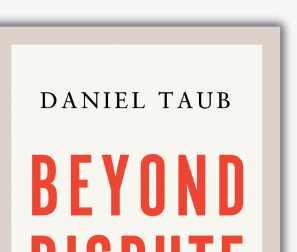
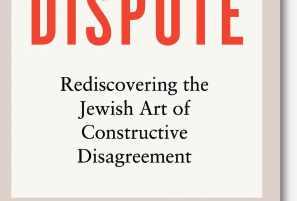

Ambassador Daniel Taub in conversation with Rob Rinder MBE
Monday 8 September, 7pm
In our divisive age, argument is seen as a plague to be avoided or a contest to be won
In his new book, Beyond Dispute, diplomat and peace negotiator Daniel Taub argues that ancient Jewish wisdom offers a third way
jw3.org.uk /argue-better



Thursday 18 September, 7.30pm
David has reported from many of the key conflict zones of our age, including Ukraine, Israel and Syria
In this exclusive event, hear from The Mail’s Special Correspondent about his career on the front lines of an increasingly dangerous world

jw3.org.uk/patrikarakos
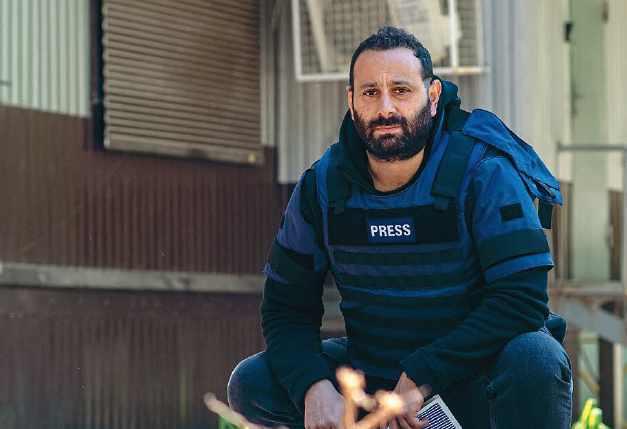
Theatre boss says no to JN interview
The head of a theatre company has withdrawn permission for Jewish News to publish an interview promoting her new Jewish-interest show, saying “current political issues between us” made her uncomfortable with it appearing in this newspaper, writes Richard Ferrer.
In an email sent following the interview, Rosanna Mallinson, director of Akimbo Theatre Ltd, told Jewish News’ theatre critic Caroline Friedman she was denying permission for her to publish the piece publicising the show The Animator at Southwark Playhouse.
Despite Friedman informing the venue, as per standard practice,
where the piece would appear, Mallinson claimed she had not realised it would be in Jewish News until the interview ended.
It is unprecedented for Jewish News to publish correspondence between its journalists and interviewees. On this occasion, we have determined the circumstances are clearly in the public interest.
Mallinson’s email, sent to Friedman, reads: “Unfortunately, on further reflection, we think that there are current political issues that do not align between us and the paper.
“I understand that not all the readers or all of the community are in line with all the views and opinions
of all the articles published, and that there is a lot going on at the moment.
“However, the team does not feel comfortable having a feature about us published alongside some of these articles, so we would like to ask that you don’t publish my interview.”
Mallinson did not specify which Jewish News articles she had found objectionable but added: “Let us know if any other publication want to run the story.”
Asked to comment, Mallinson later said: “I was unaware when I gave this interview where this article was to be published. Caroline did not make this clear until the end of the interview. On reflection, I made a

request for it not to be published and I gave my reasons for it. I have not boycotted or stopped you publishing an article about the show.
“I requested the interview not be included as the interview felt too personal as I was asked questions about my family.”
Friedman accused Akimbo of “sending out the message that it would rather face the possibility of
empty seats than have Jews in the audience”. She added: “Jewish News has been singled out. Sadly, this is just another indication of an everincreasing hostility against Jewish people and organisations.”
The Animator celebrates the life of pioneering animator Lotte Reiniger and the support she received in 1920s Berlin from the Hagens, a prominent German Jewish family.
BOARD CONDEMNS NAZI MEMORABILIA AUCTION
The Board of Deputies has urged a UK auction house to remove hundreds of pieces of Nazi memorabilia from sale, describing their being offered as “sinister and deeply concerning”.
Gilbert Baitson of Hull has been advertising almost 250 lots in its “auction of Third Reich memorabilia”. Items include numerous Nazi party, Hitler Youth and SS badges, as well as a sonnenkrieg [sun wheel] insignia around a swastika. While some of the lots are either for items predating the Nazi era or are innocuous, such as German road sign badges from the 1930s, most contain swastikas and are actively linked to the Nazi party.
Gilbert Baitson’s website notes the company has conducted “more than 9,000 auction sales” since its establishment 90 years ago, “including Herr Himmler’s spectacles”. Himmler was chief of the SS and a key implementer of the Nazi “final solution”.
While a number of the lots have not received any bids, others have clearly excited some interest, with a “German Spanish Cross with swords”, featuring a prominent swastika, currently having reached a bid of £650.
There has similarly been active interest in the purchase of many of the Nazi, SS and SA badges, with bids having been placed. The auction is due to end on 1 September.

Poster for The Animator at Southwark Playhouse
Israel offers Lebanon help against Hezbollah
Israel is “ready to support” Lebanon’s e orts to disarm Hezbollah by implementing a phased reduction of its military presence in Lebanon as a “reciprocal measure,” Benjamin Netanyahu’s o ce has said, writes Joy Falk.
If the Lebanese Armed Forces “take the necessary steps to implement the disarmament of Hezbollah, Israel will engage in reciprocal measures, including a phased reduction of IDF presence in coordination with the US-led security mechanism,” a statement from the Israeli prime minister’s o ce added.
“Israel stands ready to support Lebanon in its e orts to disarm Hezbollah and to work
together towards a more secure and stable future for both nations,” it continued.
Lebanese president Joseph Aoun and PM Nawaf Salam had earlier approved the objectives of a US proposal to disarm Hezbollah.
Reacting to the Israeli statement, Hezbollah leader Naim Qassem said the group would refuse to disarm.
Israel had praised leaders in Beirut for their “momentous decision,” calling the move “a crucial opportunity for Lebanon to reclaim its sovereignty and restore the authority of its state institutions, military, and governance—free from the influence of non-state actors.”

It was reported last week that Washington had asked Israel to scale back “non-urgent” military action in Lebanon, warning that continued IDF strikes risk undermining Beirut’s e orts to disarm Hezbollah.
Opposition to death sentence
Reform Jewish leaders in the United States are opposing the death penalty for the man accused of killing two Israeli embassy members of sta in Washington, D.C., in May, writes Grace Gilson.
Rabbi Jonah Dov Pesner, the director of the Religious Action Centre of Reform Judaism, called on Bondi to forgo the death penalty in the trial of Elias Rodriguez in a letter sent this week.
“Despite the pain of Sarah and Yaron’s murders and despite the hateful motivation behind their deaths, we believe that the death penalty is
a stain upon civilisation and our religious conscience,” Pesner said.
Rodriguez stands accused of shooting Israeli embassy sta ers Yaron Lischinsky and Sarah Milgrim to death outside the Capital Jewish Museum on 21 May.
He is currently charged with murder of foreign o cials, first-degree murder and two federal counts of hate crime resulting in death. The federal charges make him eligible for the death penalty if convicted, but prosecutors have
not yet said whether they plan to seek it. In the letter, Pesner – who noted that Milgrim grew up attending a Reform synagogue – said Jewish courts have prohibited capital punishment for “2,000 years,” adding, “Jewish tradition found capital punishment repugnant, and we continue to do so today.”
During the trial of the Tree of Life synagogue shooter, the families of the 11 victims were divided over whether the death penalty was appropriate.
ENVOY ACCUSES FRENCH LEADER
The United States’ ambassador to France was summoned by the French Foreign Ministry last weekend following the publication of a letter in which he accused President Emmanuel Macron of fueling antisemitism in the country.
In the letter, which was published in the Wall Street Journal, Charles Kushner criticised Macron for a “lack of su cient action” in addressing a sharp rise in antisemitism in the country.
Kushner also accused Macron of fueling hate against Jews in the country through his criticism of Israel, including last month when Macron announced plans to recognize Palestinian statehood at the United Nations’ General Assembly in September.
Critics of calls to recognise a Palestinian state have said the move should come through negotiation with Israel, and Macron’s announcement was condemned by Israeli Prime Minister Benjamin Netanyahu, who said it “rewards terror” and would be a “launchpad to annihilate Israel.”
“Public statements haranguing Israel and gestures toward recognition of a Palestinian state embolden extremists, fuel violence, and endanger Jewish life in France. In today’s world, anti-Zionism is antisemitism – plain and simple,” the letter read.
The letter comes just weeks after Kushner’s arrival in France as the American ambassador.







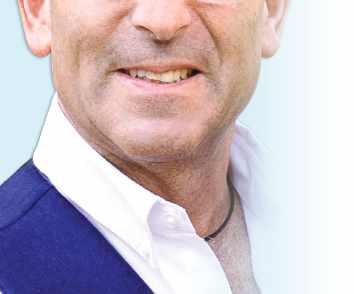

INDEPENDENT ALIYAH CONSULTANT
SCHEDULE A FREE IN PERSON MEETING WITH DOV LONDON SEPTEMBER 8th, 9th & 10th / MANCHESTER 11th SEPTEMBER
A Hezbollah attack in northern Israel
Editorial comment and letters to the editor
LETTERS TO THE EDITOR
VOICE OF THE JEWISH NEWS
20 plots foiled, yet still no ban
A survey published this week shows nearly three-quarters of Labour voters are in favour of proscribing Iran’s Islamic Revolutionary Guard Corps, the IRGC, and that two-thirds of the UK public overall back a ban.
The survey, carried out by JL Partners, was made public as Australia took dramatic steps to highlight the involvement of Iran in terror attacks specifically targeting the Jewish community – expelling the ambassador, the first such expulsion since World War Two – and several other Iranian diplomats.
Along with the Australian move, Britain’s MI5 has reported that at least 20 terror attacks planned in the UK have ben foiled in the last two years alone.
The Australian Jewish community has naturally welcomed the government’s trenchant action, with Prime Minister Anthony Albanese saying there was “credible intelligence” to indicate that the Iranian government was behind the attacks against the Adass Israel synagogue in Melbourne and Lewis’s Continental Kitchen, a kosher establishment in Sydney. Mike Burgess, head of Australia’s security agency, said: “They’re just using cut-outs, including people who are criminals and members of organised crime gangs to do their bidding or direct their bidding”.
In Australia, the IRGC will now be listed as a terror organisation, with full steps taken to proscribe it.
British Jews are entitled to ask for similar draconian action from our government. Iranian exiles in the UK have long implored previous governments – and this one – to proscribe the IRGC. When Australia’s intelligence community is ready to say publicly that it blames Iran for planning terror attacks, it is hard not to believe that the same conclusions apply equally in this country.
Home Secretary Yvette Cooper was quick to proscribe Palestine Action. Australia has given her a heaven-sent opportunity to do the same with the IRGC, a double whammy which will protect both the UK Jewish community and Iranian exiles hoping for regime change in their maligned country.
Jewish News urges her not to delay.
Our Jewish communities
I rarely agree with your deputy editor Daniel Sugarman, but he was bang on the money with his article published on 11 August, (“It’s time to stop pretending our community is united”).
Unity in our Jewish community is impossible, since the two tribes Daniel refers to do not even have common objectives – neither regarding Israel or even domestic antisemitism.
A cry for unity can be effective when groups differ over the means to achieve a solution, but broadly agree on what it is. It is not possible when we can’t even agree on what that solution ought to be.
Daniel introduced categories of Jews according to their beliefs. As someone who meets the
FANTASY SOLUTION
It seems your newspaper, like much of UK Jewish leadership, who profess to speak “for the majority”, is obsessed with the idea of a two-state solution.
I fail to understand how any Jew can entertain such a fantasy after the events of 7 October.
I appreciate it’s not always possible, but if the Jews in the UK were really concerned about Israel’s welfare, rather than their own self-interests, they would be living in Israel, and better understand what such a solution really means. There has never been a Palestinian people and Arabs living within Israel’s borders have refused an offer of their own state on five occasions.
While some resolution must be found for those Arabs who now inhabit Judea and Samaria, it should be remembered that they, who in the main support the actions of Hamas, want only one state between the river and the sea.
David Freeman, EN5
THE STATE WE’RE IN
While it was disrespectful for members of the crowd, demonstrating for the hostages outside Downing Street, to boo the executive rabbis of Progressive Judaism, (because they objected to their comments calling for an end to the war in Gaza and expressing support for the idea of a Palestinian state), surely it simply reflects the division between Jewish right and left wing supporters dividing Israeli society. There can be no recognition of a Palestinian state before all the hostages are released and a new governing body is installed in Gaza.
Kay Bagon, Radlett

Support your Jewish community. Support your Jewish News
Thank you for helping to make Jewish News the leading source of news and opinion for the UK Jewish community. Unlike other Jewish media, we do not charge for content. That won’t change. Because we are charity-owned and free, we rely on advertising to cover our costs. This vital lifeline, which has dropped in recent years, has fallen further due to coronavirus.
Today we’re asking for your invaluable help to continue putting our community first in everything we do. For as little as £5 a month you can help sustain the vital work we do in celebrating and standing up for Jewish life in Britain.
Jewish News holds our community together and keeps us connected. Like a synagogue, it’s where people turn to feel part of something bigger. It also proudly shows the rest of Britain the vibrancy and rich culture of modern Jewish life.
You can make a quick and easy one-off or monthly contribution of £5, £10, £20 or any other sum you’re comfortable with. 100% of your donation will help us continue celebrating our community, in all its dynamic diversity.
Support Jewish News by visiting our donor page at jewishnews.co.uk
criteria of Type B, I – and many others in the community, maybe a majority – can henceforth be known as Sugarman Type B Jews (“STBJs”. We STBJs realise that almost all of the large and medium-sized community institutions are run by Sugarman Type A Jews (“STAJs”).
The consequences over a period of years will not be a reconciliation or an attempt to change such organisations from within.
They will, instead, be that STBJs will form their own groups and STAJs will not be welcome – in exactly the way that we STBJs are unwelcome in big community groups run by STAJs to migrate to the UK and other countries.
Gary Mond, by email
THE FOUR TRIBES
Your deputy editor Daniel Sugarman made excellent points in his piece about two tribes in the Jewish community. But there are two other tribes he missed. One is the growing number who don’t see themselves as Zionists, whether in non- or anti- form. This is borne out by the latest poll figures and follows the USA trend.
The other are those – perhaps the majority –who really don’t give a flying flamingo one way or the other.
I would even question whether there is a UK Jewish community. There are, in my opinion, several communities that find they have less and less in common, as witnessed by the disgraceful scenes by sections of demonstrators at the so-called unity march for the hostages. I attended the march, but wish I hadn’t after the bait-and switch tactics.
Joe Millis, by email
THE BULLYING LEFT
The community’s recent rally for the hostages was meant to be a united front to calling for their release. Instead the left staged a hijack attempt.
They know the idea of a Palestinian state is not a community-wide accepted position. When the crowd made their feelings known, community machership attacked the effect, not the cause.
The left are the bullies and need to be stood up to. Well done to the crowd for doing so. But the damage is done. The government now has Jewish cover for its policy.
Shimon Cohen, N2
















ALBANESE’S MORAL FAILURE
Earlier this month, UN Human Rights expert Francesca Albanese stated that Hamas should not necessarily be viewed as “cut-throats, people armed to the teeth, or fighters.” Sadly, this doesn’t come as a surprise. She emphasised that Hamas is a political force that won the 2005 elections. While it is true that Hamas, much like the NSDAP in Germany 88 years earlier, secured around 40–50 percent of the vote in elections that were to some extent free and democratic, both movements were founded on genocidal ideologies and were intrinsically tied to their military wings.
Other comments from Albanese’s, delivered in November 2022, further illustrate this pattern. Addressing a Hamasorganised conference, she unashamedly stated that they have a right to “resist the occupation”! Thankfully, when I was visiting
We recently marked the 80th anniversary of VJ day. My father and three of his brothers served in Burma during the Second World War. My father, Joel Randall and Alfred with the 14th army, James with the Chindits and Louis who had emigrated to America, with American army on the Lido Road. His other three brothers served in Europe and thankfully they all safely returned home.
David Randall W1












West Berlin in 1989, still formally occupied by the US, UK and France, there was not a single German there who wanted to blow up buses with American, British or French ‘occupiers’! The Germans I saw there were all interested in making money, getting an education, and having fun with their families, including those who might be taking part in protests calling for the US Army stationed there to ‘go home’.
She also pointed out that Israel labels “resistance” as “terrorism,” but “an occupation requires violence and generates violence.”
This pattern of Western ‘radical progressives’ siding with some of the most despicable regimes has a long history.
Sadly, the arguments remain consistent, and the ideological circles that support them are also the same.
David Frencel, Hackney
Each May we rightly commemorate the defeat of Nazi Germany, with the Jewish community’s memories of liberation and loss shaping the focus on VE Day. Yet we must not overlook the other bookend of that global conflict: VJ Day. Many Jews served and suffered in that theatre, too. To remember one victory without the other is to forget that the Second World War was a truly global catastrophe
Robert Colbert, By email
Your columnist Richard Miron’s comparison of the treatment of the co-heads of Progressive Judaism at the Stop The Hate rally earlier this month, to views expressed by the late Chief Rabbi Jakobovits in 1991, entirely missed the point, as did the open letter signed recently by a small number of community leaders.
As a community, we should be open to discussion of all perspectives. I agree that, in a debate, it would be inappropriate for a speaker to be booed, let alone removed, because some (or even all) disagreed with their point of view. However, this was a rally, not a debate – the difference being that a rally usually centres on a specific
point of view which the organisers, and the attendees, want all to hear loud and clear. Rabbis Levy and Baginsky were either very poorly briefed, or very naive, to believe that was the appropriate forum at which to advocate for a Palestinian state.
I cannot imagine that the situation would be any different if the rally was for any other strongly-held cause (say, a Gay Pride Parade, or Just Stop Oil, or – come to that – a pro-Palestinian rally) and a speaker put forward a perspective they knew would be unacceptable to many of the attendees.
Jonny Dickson Edgware
A HISTORY AND LEGAL LESSON
It seems Prime Minister Keir Starmer needs reminding that the Balfour Declaration recognised the Jews, and no other, as having an inalienable right to a national home in the land of Israel (renamed “Palestine” by the Romans).
The Declaration was a political gesture which provided an impetus to seal it in law. At San Remo, in 1920, the Allies did just that. In 1922, Churchill, through an act of trickery, divided Palestine, allotting the Jews a mere 22 percent, from the river to the sea, and the rest to the Hashemites of Saudi Arabia and the Arabs of the region
(today’s Jordan) – an act nevertheless approved by all 51 members of the League of Nations. This forms an international law valid until this day.
Would the prime minister please explain to the Jewish people why he thinks it just to divide the land further and transgress this law (Article 5)?
Would he do the same to Bradford or Leicester? Or rescind any of the 14 colonies (renamed “overseas territories”) Britain still holds?
Eda Spinka NW4



DR JONATHAN BOYD EXECUTIVE DIRECTOR, INSTITUTE FOR JEWISH POLICY RESEARCH
The desire to find the answer to Jewish education is understandable. But it’s a category error. Our latest study suggests: We don’t need one big answer. We need many good ones, working together.
At times of communal anxiety or institutional uncertainty, it’s natural to seek a single, transformative solution – a ‘silver bullet’ that promises to fix all our Jewish problems. A new school, a flagship programme, a revolutionary curriculum. But this impulse misunderstands what education is and how Jewish identity is formed.
Jewish identity isn’t delivered through one-o interventions. It’s cultivated slowly, across time and space, through a web of experiences, relationships and meaning-making. If we want to build resilient Jewish futures, we need to shift our focus from single solutions to interconnected ecosystems.
This is one of the key insights from JPR’s

new study, which statistically analyses the long-term impact of various Jewish educational experiences on British Jews. The findings challenge the notion that any single intervention can decisively shape identity. Instead, they point to the cumulative power of multiple, overlapping experiences.
Silver-bullet thinking treats Jewish identity as a product – something that can be manufactured through the right programme or institution. It’s the logic of the factory: input, process, output.
But Jewish education isn’t a technical problem. It’s a human one. Thinkers like John Dewey and Paulo Freire remind us education is about transformation as well as transmission. Identity emerges through experience, dialogue and context. It is relational – formed between teacher and learner, individual and community, text and tradition. No single institution or programme, however excellent, can carry that burden alone.
An ecosystem approach sees Jewish education as a long-term, dynamic process. It recognises that no one experience is su cient. What matters is how experiences
interact – how they reinforce, deepen and extend each other over time. Jewish identity is not passively received; it is actively constructed. Learners engage with diverse environments, role models, narratives and communal practices.
In a healthy ecosystem, schools, youth movements, campus initiatives, cultural programmes, digital platforms, synagogues and, most important, families, all play a role.
This diversity is not a problem to be solved – it’s a strength to be harnessed. Each part of the ecosystem contributes something unique. No one part can replace the others; each must be connected to what comes next. Every programme should recognise that it is one piece of a larger whole.
First, learning is contextual. Dewey taught that education thrives when it connects with lived experience. Ecosystems allow learners to encounter Judaism in multiple settings, making it more relevant and resonant.
Second, identity evolves. People change. Ecosystems support Jewish growth across life stages. Third, belonging is built. Community isn’t downloaded; it’s formed through
repeated, meaningful participation. Ecosystems cultivate thick relationships – not just with content, but with people, places and values. Fourth, no single model fits all. Learners come from diverse denominational, familial and socioeconomic backgrounds. Ecosystems o er choice and personalisation, rather than imposing uniformity.
Fifth, resilience comes from overcoming challenges. When one part of the system falters – a school closes, a teacher moves on –others can step in. Ecosystems are adaptive in ways silver-bullet solutions are not.
The desire to find ‘the answer’ to Jewish education is understandable. But it’s a category error. There is no one answer, because the question is not one problem. It’s many: identity, belonging, memory, ethics, community, literacy, joy.
The future of Jewish education won’t be engineered by silver bullets. It will be grown – carefully, relationally and iteratively – by nurturing ecosystems where Jewish life can flourish in its full complexity.
We don’t need one big answer. We need many good ones, working together.
Two big Gaza claims that were both built on fiction Forget big fixes – Jewish identity needs small ones
JEREMY HAVARDI AUTHOR & JOURNALIST
In the past week, two claims have been made about the war in Gaza which illustrate the sheer depth of mendacity in reporting about Israel. The first is a bombshell ‘finding’ from a joint report by The Guardian and +972 magazine, claiming that, according to a classified Israeli military intelligence database, five out of every six Palestinians killed by Israeli forces in Gaza have been civilians.
According to the reporters, this is “an extreme rate of slaughter rarely matched in recent decades of warfare”. They reached this figure by citing an IDF military database that listed the names of 8,900 Hamas fighters that Israel identified as being killed or likely killed in the course of war.
They then went on to subtract that figure from Hamas’s estimate of 53,000 Palestinians killed up to May 2025, concluding that these other people were all civilian.
If true, this would obviously contradict Israel’s own estimate that it had killed around 20,000 terrorists from the various groups in Gaza and cast doubt on the idea that the IDF
had taken all measures possible to mitigate harm to civilians, which is indeed its obligation under the laws of armed conflict.
It would imply a civilian to combatant ratio, not of 1.5:1, as some have claimed, but approximately 5:1. At the least, it would lend credibility to claims Israel has been gung-ho in pursuing its enemies in Gaza.
But as soon as one reads the actual report, it’s clear it proves nothing of the sort. Far below the headline, it states “Israeli military intelligence are not aware of all militant deaths or all new recruits” and the database also does not include those “who were killed but could not be identified by name”.
That is entirely logical. It is rarely possible for a country’s intelligence service to identify in advance every enemy combatant or terrorist operative.
This was as true in World War II as it was in the wars against Islamic State. Moreover, both Hamas and PIJ are believed to have added thousands of fighters to their ranks, many of whom are likely to have been killed in battles with the IDF.
This would imply a figure far higher than the 8,900 dead in this report, and perhaps closer to the numbers that Israel has claimed.
It is still true many thousands of civilians have been killed in Gaza and the true figure
of combatant deaths may never be known. But this report was less a piece of investigate reporting and more a tendentious propaganda exercise.
The second major ‘reveal’ has been the declaration that famine now stalks parts of Gaza, based on a report by the UN’s Integrated Food Security Phase Classification (IPC). Their criteria state 20 percent of households in an area must face an extreme food shortage, 30 percent of children are acutely malnourished and there are between two to four deaths per 10,000 people each day, caused by starvation.
Yet it is immediately clear that at least one of these criteria has not been met, namely deaths from starvation. For Gaza City to be starving, at least 100-200 daily deaths in a population of 500,000 would have to be reported, a figure that has eluded even Hamas. As of 25 August, their health ministry has claimed 289 total deaths from malnutrition since the start of the war, with eight more claimed in the previous 24 hours. Something doesn’t quite stack up here.
It may sound deeply callous to question the mortality figure from hunger when even one such civilian death is a tragedy. Moreover, there is undoubtedly enormous su ering in parts of Gaza where food and
other supplies are not arriving, in large part due to UN food deliveries being intercepted by Hamas. Indeed, the IPC admits this in its report when it says “very little of the food that is reported as o oaded or collected is reported to have arrived at the intended destination in the Gaza Strip”.
But the word ‘famine’ is a specific claim, one that requires a level of proof which, by the IPC’s own standards, appears to be lacking. Moreover, it is a word that is being used to condemn just one actor: Israel.
Perhaps that is not surprising, given that Hamas receives not one single mention in the entire IPC report. For the international community, it is as if the terror group has vanished completely.
Some will argue that in the face of these and other questionable accusations, Israel has not helped itself. They will point out that it imposes severe restrictions on foreign journalists operating independently in Gaza, lending support to the idea that the country has something to hide.
The accusation is not without merit and the ban on media access should be reversed.
But there is no excuse for such misleading reports to be taken as gospel truth during a war where misinformation has so often been the norm.
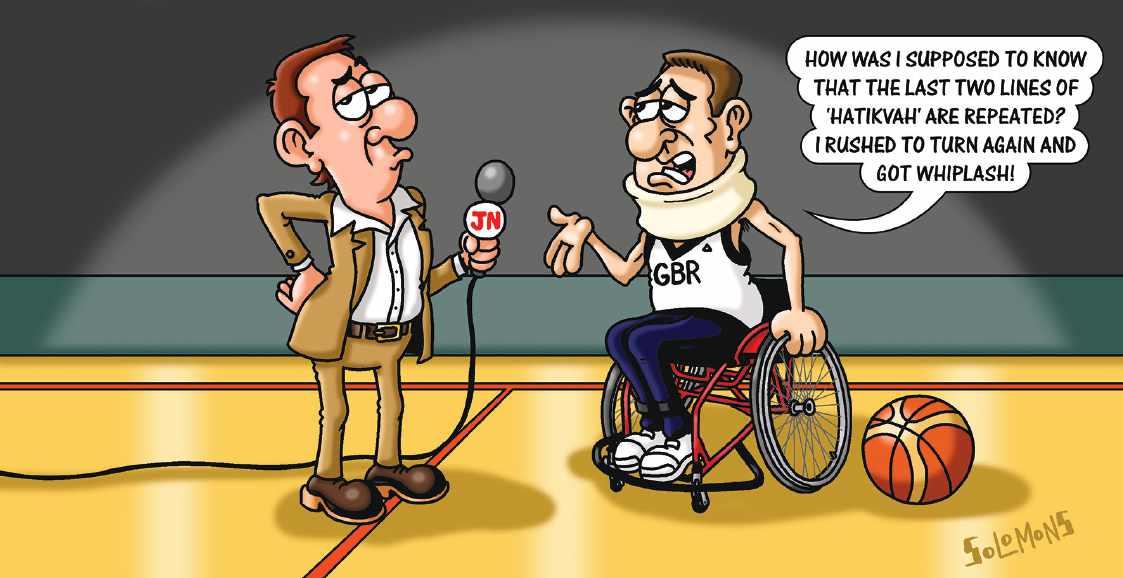
Following the British Paralympic Wheelchair Basketball team turning away during the Israeli team’s natinal anthem…
Looking for best value for Private Health Insurance? Ask The Expert!
To get the best value from your private medical insurance, you should speak to an expert who is qualified to advise you on the right policy for you, and recommend the providers who offer the most competitive premiums.
This advice covers individual, family and company policies, and is always FREE.
As an independent health insurance expert, I work with the healthcare insurers to provide you with the appropriate and most affordable level of cover. So whether you have an existing policy or not, let’s have a chat.
You can contact me at 020 3146 3444 or 07956 244350 trevor.gee@patienthealth.co.uk



CST HEAD OF POLICY
London, 1962: The National Socialist Movement, a bunch of Nazi wannabes and Hitler worshippers, hold a rally under the slogan “FREE BRITAIN FROM JEWISH CONTROL”.
Leeds, 2025: A ‘Northerners Demo For Palestine’ in Leeds, organised and promoted by Yorkshire Palestine Collective, Leeds Palestine Solidarity Campaign and others, features a speech by UK-based Palestinian-Jordanian doctor Rahmeh Aladwan on holding Jewish communities in Britain to account for what is happening in Gaza. When her speech is posted on X, Aladwan replies with the slogan: “FREE BRITAIN FROM JEWISH SUPREMACY”.
Almost identical language, 63 years apart, one from neo-Nazis, the other from an antiZionist saying Britain is unfree because it is dominated by the Jews. It’s hard to think of a simpler example of antisemitism than this.
This is the central claim of all modern antisemitism. It even has its own acronym,

ZOG, standing for Zionist Occupied Government, popularised on the American far-right in the 1990s and spread to all corners of the conspiracy multiverse. As a 2010 study noted: “The most commonly held conspiracy theory was variants on ZOG, the belief that Jews secretly control major world governments.”
The use of ‘Zionist’ as a euphemism for ‘Jewish’ in this conspiracy theory is familiar, and has been around for longer than you might think. Early promoters of the Protocols of the Elders of Zion, the bible of modern antisemitism, claimed the meetings of these fictional Elders happened on the sidelines of the first Zionist Congress in Basle in 1897 – making the Zionist movement a supposed front for the global Jewish conspiracy from the start.
There’s a reason the Hamas Charter quotes from the Protocols and claims the Zionist movement was behind the French Revolution, despite modern Zionism not taking shape until a century later. This conspiracist antisemitism might dress up as anti-Zionism but it’s the same old hatred in new clothes.
Except now, people are increasingly willing to say openly it is Jews, not Zionists, who are
the problem. In her speech in Leeds, Aladwan said “Western governments” are “occupied by Zionism, which is Jewish supremacy, OK, that’s the definition of Zionism”.
The most excitable advocate of this new approach in Britain today is David Miller, who is obsessed with the idea that every part of British society – and indeed, much of the world – is under the spell of Jewish supremacy. “Europe is already occupied by both this ideology and the financial networks that underpin it,” he wrote in October 2024, warning “the entryist, subversion and surveillance networks that allow for complete Jewish supremacist dominance over our politics in Europe and the US … must be destroyed”.
The danger of this is obvious. Aladwan’s speech in Leeds moved seamlessly from naming “Jewish supremacy” as the problem, to a call for people to “hold their Jewish communities accountable”, with synagogues and schools singled out. Miller has done this for years, smearing Jewish community institutions, synagogues, schools, charities, youth movements and even interfaith initiatives as genocidal racists, and it seems others are
following suit. This is the pathway for antiIsrael rhetoric to divert towards local Jewish communities, at a time when antisemitic hate crimes are at unacceptably high levels. It’s irresponsible, to say the least.
Back in 2003, John Tyndall, then leader of the British National Party and Britain’s leading neo-Nazi, defined “Zionist” as: “One who regards the Jewish race as God’s ‘chosen people’, destined to prevail above all other racial and religious groups. He/she is always primarily the servant of Jewish interests whatever his/her role in the host society, but will naturally conceal this order of priorities as a matter of expediency.”
As for ZOG, Tyndall wrote, “this “can be held to exist wherever Jews occupy senior positions in a political establishment in large numbers and wield considerable power”.
Tyndall was writing in Spearhead, the house journal of the BNP. He didn’t live to see it, but he would be delighted to know that large swathes of the anti-Israel movement, supposedly on the left and anti-racist to their core, now share his definition of Zionism and the anti-Jewish conspiracy beliefs that underpin it.
Old words, new voices, same old antisemitism My Jewish life has been shaped by difference
DAVID DAVIDI-BROWN CEO, NEW ISRAEL FUND
Recent events risk tearing our community apart over Israel and how we speak to one another about the conflict. We can draw on times other painful di erences were navigated, not by silencing dissent but by disagreeing more agreeably.
Before turning to now, I want to share, in keeping with our people’s tradition, a couple of stories. Two barmitzvahs. Two orthodox synagogues. Two rabbis. Two entirely di erent responses to my same-sex relationship.
At the first, my then-boyfriend and I were back at my childhood shul for my nephew’s first Torah reading. After the service, I was introduced to the rabbi as the boy’s uncle. He asked if my boyfriend was a cousin. I shared he was my boyfriend. The rabbi swiftly stepped away in awkward silence.
Three years later, my husband and I –recently married under a chuppah – attended another nephew’s bar mitzvah, again at an orthodox synagogue. We were honoured to open and close the Ark. This rabbi welcomed us warmly and wished us mazeltov. Same movement. Same halachic boundaries.
The di erence? One rabbi saw us as a problem to sidestep. The other as family to embrace.
I grew up in a traditional United Synagogue family, usually going to shul only three times a year, kosher meat at home and attending a secondary school under the auspices of the Chief Rabbi of United Hebrew Congregations. I admire orthodox communities. I still love learning Torah. I also experienced painful homophobia in orthodox institutions and for two decades volunteering and working in cross-communal spaces.
A teacher compared being gay to having a disability – something to “overcome” as a spiritual test. A senior manager gossiped about my sexuality, questioning my fitness to work with young people. Straight colleagues told me what is and isn’t homophobic when I challenged their enthusiasm for the pro-Israel but anti-LGBT Democratic Unionist Party.
I was told I was responsible for a trustee and fellow director threatening to resign because the cross-communal charity we worked for marked LGBT History Month – an initiative led by a straight colleague. Tolerating people like me was just about acceptable; publicly celebrating inclusion was a “red line”.
Let me be blunt. I have defended religious freedoms of people who continue to teach texts that say the way I love is a perversion punish-
ENFORCED SILENCE IS NOT THE ANSWER IF WE WANT A COMMUNITY THAT CAN SURVIVE
able by death. Which is why our community’s current fractures over Israel are so jarring.
Those of us who love Israel but oppose its extremist government – who stand with most Israelis calling for an end to the war and a hostage deal – are told to keep quiet “for the sake of unity”.
Criticism is painted as betrayal. Supporting or expressing understanding for UK policies addressing the excesses of Netanyahu, Smotrich and Ben Gvir is treated as treachery.
Unity, it seems, is invoked only to suppress views that diverge from the most traditional or hawkish. I don’t see the same aspiration for unity prompting robust responses when homophobia, misogyny, racism, anti-Palestinian prejudice or anti-Muslim hatred surface.
If we want a community that can survive di erence, unity cannot mean enforced
silence. It must mean staying in relationship even when we profoundly disagree.
From years of dealing with homophobia in Jewish spaces, here’s what I’ve learned about trying to make that possible:
• Build broad constructive relationships before you need them.
• Assume good faith – even when it’s hard.
• Understand people based on their values before respectfully challenging specific views.
• Use shared values as common ground.
• Accept irreconcilable di erences without delegitimising people’s Jewishness.
These principles are not abstract. I’ve used them to work alongside people who condemn my life, without erasing my identity or ignoring the real harm.
If that’s possible, then we can find ways to talk about Israel without harassing or hounding each other over dissenting views.
We can be united without being uniform. That is not naïve optimism. It is lived experience, and it requires honesty about the hurt caused by our own community, not just the threats outside it we all face together.
The Torah doesn’t command us to agree with each other. It commands us to care for each other. For the sake of heaven – and even more urgently, for the sake of our community’s survival – we must learn to do both.
DAVE RICH
1
EDINBURGH ANTISEMITISM MET WITH SHOFAR BLAST
On the first day of the Jewish month of Elul leading up to Rosh Hashanah, Watford-born and Los Angeles resident Marcus J Freed blew his shofar proudly around the streets of Edinburgh. The action was in defiance of the antisemitism scandal at the city’s Fringe Festival, where two Jewish performers were banned from appearing at the pub venue Whistle Binkies. Freed, a Jewish performer, rabbi and writer, has just completed the final Edinburgh performance of his play Marcus Is Alive
2 HAT’S INCREDIBLE! ALL SMILES FOR EMILY
Emily Ben-Ze’ev from Emily’s Adventures in Wonderland visited West Hampstead Chabad for a workshop on the world’s hats. Children had great fun trying on headgear from more than 20 countries and listening to a selection of international music and folk tales.
3
ZICHRON MENACHEM’S LONDON LIFE CHANGER
Zichron Menachem hosted an unforgettable summer camp experience in the UK for 87 young cancer patients from Israel. For the children and young adults, it was the first time away from hospital routines, wigs and even their parents. Longtime volunteer Shoko said: “This camp fuels your soul. My wife, an oncology nurse, and our four daughters have all donated their hair. Volunteering here feels like a privilege – the more we give, the more we want to give.” Camp outing highlights included Legoland, Thorpe Park, Go-Karting, Madame Tussauds, Chessington, Top Golf, Diggerland and shopping at Westfield and Smyths Toys.
4 JLGB’S ANNIVERSARY SUMMER CAMP
JLGB sold out every place at its 130th anniversary summer camp this year, bringing together more than 750 young people from across the UK, Israel and beyond. Adventures included zip wires, giant swings, aerial ropes, lake inflatables and It’s a Knockout team challenges. There was also a moving Kabbalat Shabbat, fireworks over camp, carnival rides and games under the stars. One Manchester parent said: “Credit to the whole team for everything you do for our kids, who more than ever need a safe space to understand what it means to be loud and proud Jews.” Camp also honoured JLGB’s past and future, including a visit from president Lord Levy.
5 YOUTH FUNDRAISING FOR BRITISH EMUNAH
This summer, three young people took on personal fundraising challenges for British Emunah in support of vulnerable children and families in Israel. Amy Cohen, 12, marked her bat mitzvah by completing a triathlon – a 5km bike ride, a 5km run and a 200m swim. Rafi Marks and Ryan Newgrosh, both Year 12 students, chose to spend their summer holiday cycling from London to Paris, a 300km journey they organised entirely themselves. Their determination paid off, raising nearly double their original fundraising target.

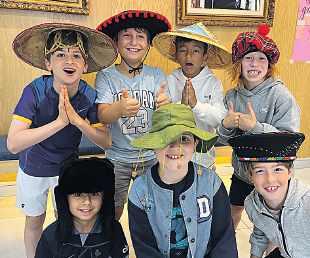




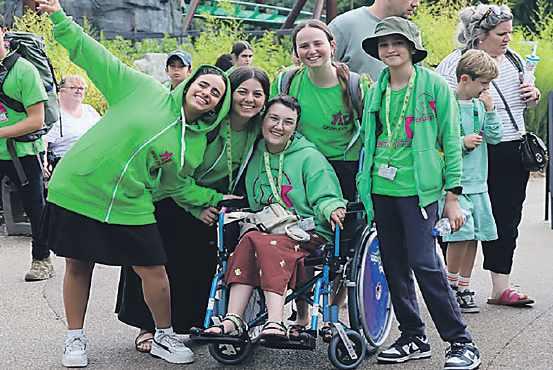





Jewish News presents


The Big Event



Bar & Batmitzvah show 11AM to 4PM SUNDAY 2025 NOV 30




Village Hotel, Centennial Park, Elstree, WD6 3SB


Springtime for Andy
Andy Nyman is stepping into the role of Max Bialystok in the West End revival of The Producers.
By Darren Richman
Andy Nyman is a multihyphenate. In a career spanning decades, he has worked as an actor, writer, director, magician and singer. In recent years, he has become a West End star, acting in plays as diverse as Tom Stoppard’s Leopoldstadt, Martin McDonagh’s Hangmen and Hello, Dolly! The latter was Nyman’s first venture into musical theatre since his turn as Tevye in Fiddler on the Roof, a performance that earned him an Olivier Award nomination.
Now he is returning to another iconic Jewish musical role, Max Bialystock in Mel Brooks’ The Producers. After a limited run at the Menier Chocolate Factory that ran from late 2024 to March 2025, the first major revival in the West End will open at the Garrick Theatre in September.
The production’s star first saw the original 1967 film on the BBC as a child after the news on a Monday night. His parents were
avid filmgoers and encouraged their son to stay up and watch the movies they deemed worthwhile. He explains: “Not only did I love it, but the reason I loved it so much was hearing my dad absolutely schticking with laughter in the most extraordinary way. I loved Mel Brooks from that moment on.”
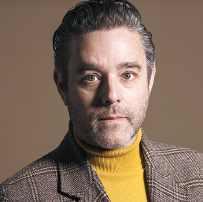
Nyman saw the film a couple more times as a young man before the musical opened on Broadway in the mid-2000s and he went with his family. He later took his parents to the West End transfer and has “very dear memories of both the film and the show”. He is unequivocal when speaking about the importance of The Producers:
“It’s an incredible piece of work that’s had three separate lives. When the film came out, it was


spitting distance from World War Two.
The bravery of that piece of writing, the bravery of Mel Brooks’ mishigas, to be able to process the pain and use laughter as a healing device is amazing.”
That original audience would have contained many directly affected by the war, something that was not the case when the musical opened in the 2000s: “The world was in a cosy place so the politics of it didn’t really matter because the world felt safer. It was an amazing piece of work from an artist reinventing themselves at 70 years old.”
Now, a quarter of a century on, the world has changed again with the rise of the far right and this production reflects that. “It’s really stripped back and taken back to the dirty fingernails of the original film,” says Nyman. “The politics feel more essential now than they ever have. You hear waves of relief from the audience. It’s incredible that this man’s work is more relevant, important and funnier than it’s ever been.”
Nyman has achieved a great deal in a number of different mediums but one of his proudest moments came working on this production when he wrote a gag for his hero: “There is a joke at the end of the show, an announcement that comes on and it’s Mel Brooks. They’d
asked him to do the announcement about turning your phones off and he didn’t want to do it.”
The show’s star came up with an alternative and the response from Brooks, recounted in a pitch-perfect impression of the 99-year-old, was: “I love it! I’ll do it!”
The unshakable self-belief that allows one to pitch a joke to one of the most important figures in comedy history or take on roles immortalised by others on screen has been part of Nyman’s character since his early days in entertainment. He was offered what Channel 4 thought would be a five-year deal doing “mind reading magic” when work as an actor was hard to come by. Despite having both a baby and a mortgage to think about, he turned down the money because he prioritised happiness and did not want to jeopardise an acting career. Instead, he told the channel he would be happy to work with whoever they did find to front the thing. He ultimately wrote and directed countless hours of television and theatre with the mentalist who took the role – one Derren Brown.
Another collaborator he met not through a television channel but rather on Jewish summer camp in his teens. That chance meeting with Jeremy Dyson, the non-acting member of The League of Gentlemen, came in 1981, and
ultimately resulted in Ghost Stories, the 2010 play they adapted for the big screen in 2017. That project was hugely informed by their Jewishness, as is much of Nyman’s work, he feels. He was brought up in a kosher home in Leicester, “traditional but not desperately frum”. He no longer keeps kosher but is, he insists, “spiritually aligned to Jewishness”. He thinks about it all the time, says Modeh Ani when he wakes up and often recites the Shema at night. He has maintained a close friendship with the rabbi in Leicester, lays tefillin on occasion but, “being a good Jew is not about how often you go to shul”.
Mel Brooks is living proof of that assertion, one of the greatest living Jews who is anything but orthodox in any sense of the word. His latest Max, Nyman, has become best known for both horror and musicals – unlikely bedfellows perhaps. Like the man behind The Producers, he refuses to be pigeonholed. Brooks is one of only 21 people in history to have won the EGOT (an Emmy, a Grammy, an Oscar and a Tony), which gives some indication as to his range. While he considers himself an actor first and foremost, Nyman has finally come up with an answer that covers all bases when people ask him what he does. It is a categorisation that Brooks would undoubtedly approve of. These days, he says: “I’m in showbusiness.”
Andy Nyman, left, and, above, as Max Bialystok with Marc Antolin as Leopold Bloom
Nyman in full song on stage
The King of Krakow
The Jewish community is growing in a location where they were once murdered in their millions, with the help of King Charles. By Anthea Gerrie

In what was the worst place in the world for Jews 80 years ago, a miracle is blooming.
The city on the doorstep of Auschwitz, whose 70,000strong community dwindled to a reported 100, is enjoying a once-unimaginable renaissance in Jewish life as increasing
he made after visiting Auschwitz this year. He spoke not from the camp, where he attended the 80th anniversary of its liberation, but at the Jewish Community Centre in Krakow he built after visiting survivors there in 2002 and vowing to give more help than the tiny community could even dream of.
The King positively kvelled as he added: “Standing on the steps of this wonderfully vibrant centre, having encouraged its construction and taken immense pride in opening it 17 years ago, I was filled with a sense of hope and optimism at the life and energy which coursed through the building.” And even more importantly, he confessed, seeing that new life blossom and grow exponentially on his latest visit had given him renewed hope as patron of World Jewish Relief, in a bleak new era of antisemitism.
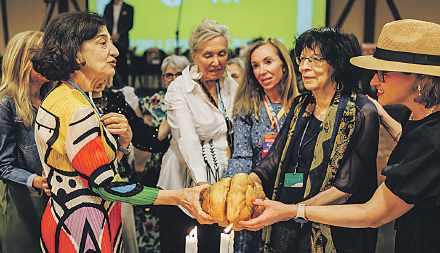

numbers of Krakow residents discover their unsuspected Jewish roots. And the unlikely architect of this phenomenon is our own monarch.
“Here in Krakow, from the ashes of the Holocaust the Jewish community has been reborn,” King Charles said in the only public statement
No wonder Jonathan Ornstein, chief executive of Charles’ passion project, hailed the King with the greeting: “Welcome to your JCC,” in January. “You can draw a direct line between Charles choosing to get involved here and our community having a future,” he explains as we talk six months later in the building where it all began.
“Without this JCC there would not have been much hope for the

community – and without Charles there would be no JCC,” says Ornstein. And perhaps no shidduch for the American, whose own wife was one of the city’s ‘lost’ Jews, unaware of her heritage until adulthood. Now their daughter attends the JCC pre-school, the first Jewish kindergarten to be opened in Krakow since the Holocaust. Ornstein, who met his bride at a Chanukah party in this building to which she was unwillingly dragged by a sister newly celebrating their Jewish blood, says her story is “remarkable in how unremarkable it is, because that’s what’s happening today in Poland”. Yet their romance seems as unlikely to an outsider as the way Ornstein originally made his living in Krakow - teaching Hebrew to 150 nonJews pursuing a Masters in Jewish Studies. “They had to do three years of mandatory Hebrew and Yiddish, and now we’re teaching Hebrew at our own Ulpan.”
Why the rush to study Hebrew and Yiddish in a country which lost 90 percent of its 3.5 million Jews in World War II? “Poland became a place of Jewish ghosts and shadows,” admits Ornstein.
“After the war many survivors went
underground and hid their Jewish identity to protect their families from persecution under Communism. But in 1989 Poland woke up from a bad dream, and a fascination with the culture which vanished with the murdered Jews developed in response to a hole in the Polish psyche. There was pent-up interest because for 45 years learning about it had been denied. No-one talked about this culture which had been part of Polish life for so long - there was no closure.”
Curiosity among locals led to the unlikely birth of the Krakow Festival of Jewish Culture, set up by two non-Jews 34 years ago – a joyous annual klezmerfest, which this year featured a talk by Ornstein. To a packed room he laid out the unlikely evolution of Krakow from the city where Schindler compiled his list, which saved only a few from deportation to the death camps.
Yet despite the interest in Krakow’s Jewish antecedents created by the festival, Ornstein points out: “What was missing from this Jewish renaissance was the Jews.” However, reviving the music and retelling the legends of Kazimierz - the old Jewish neighbourhood, home to the JCC as well as half a dozen magnificent synagogues - did create a sympathetic environment for what was to follow when Charles arrived in the city in 2002. It
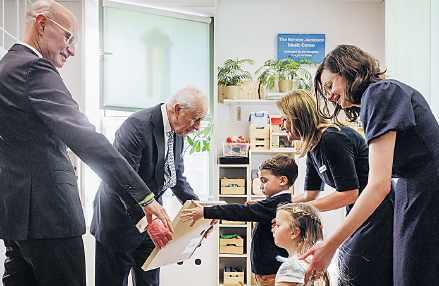
King Charles at the JCC shop in Krakow
King Charles being met by children and staff at the JCC
Breaking challah on Shabbat at JCC Krakow
Jonathan Ornstein
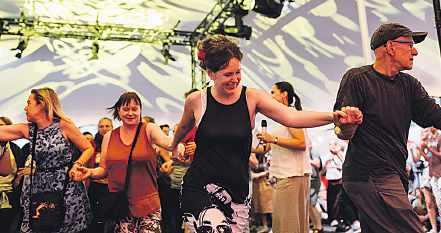
seems to have been a case of “build it and they will come”.
“After being very moved when he met some of our Holocaust survivors, the then Prince of Wales asked how he could help,” explains Ornstein, who was yet to head up a centre no-one imagined would come into being. “We said we had no shortage of places to worship, with all our synagogues, but we could use a day centre for our survivors. Charles said he would see what he could do.”
After Charles met with World Jewish Relief in London, a vastly more ambitious and generous o er was made. “They visited and saw what was going on here – an underground student movement who found out they had Jewish roots and were meeting. It was like a magnet,
pulling people in who were finding out they had Jewish roots.”
A full-blown community centre was proposed, coming to fruition within a few years of Charles
pledging some of his own money. Thanks to his involvement, World Jewish Relief were able to raise enough funds to build it. And come they did, swelling the student group whose successors have gone on to found a full-scale Hillel at the university. “As the children, grandchildren and greatgrandchildren of survivors found out they were Jewish, the real magic of the non-Jewish interest in all things Jewish allowed actual Jewish life to be fostered.”
In addition to the pre-school, Cheder, Ulpan – and the space for senior citizens originally requested for Holocaust survivors, of whom 58 remain – the JCC organises a weekly Shabbat dinner for more


EXPERT CARE

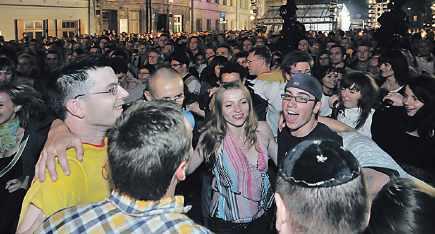
than 100, an annual charity bike ride attracting 300 cyclists from all over the world, “and the best Jewish choir in Krakow”. Their 1000-plus members have also helped feed, clothe, shelter and teach Polish to nearly half a million Ukrainian refugees in the past three years “because 80 years ago, when the Jews were the victims, the world was silent,” says Ornstein in explanation. Seeing the community, which has also been swelled by Israelis moving from France, Belgium and other parts of western Europe since 7 October, grow is something which never ceases to excite this optimistic believer. “Our reborn community has become a symbol of hope and resilience, welcoming 100,000 visitors a year. It’s why I thanked Charles, when he came
CONDITIONS
back here, for giving our community, transformed from victims to caregivers, the most precious gift possible. Life.”
friendsofjcckrakow.org


WHY PSYMPLICITY?
Comprehensive assessments & treatment for wide range of mental health conditions.
Direct liaison with GPs, employers, universities, schools, and the DWP to support your needs.
Access to effective, tailored treatment plans to help you manage and recover.
In-house psychotherapy with experienced professionals for consistent, ongoing care.








The forecourt of JCC Krakow
Jonathan Ornstein reading from Hagaddah
Israeli dancing in the street at the Krakow Festival of Jewish Culture
Dancing in Kazimierz, Krakow’s historic Jewish neighbourhood

MAKING SENSE OF THE SEDRA
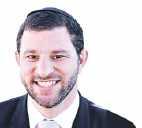
In our thought-provoking series, rabbis, rebbetzins and educators relate the week’s parsha to the way we live today
At the end of this week’s parsha, Shoftim, we are told about the law of a person who is killed in a city, when there is no indication who the killer is. The elders of the city closest to the dead body take a calf, and they make the following proclamation: “Our hands did not spill this blood, and our eyes have not seen who spilled this blood. (Let this calf) atone for the Jewish people who you redeemed, and don’t place this blood amongst the Jewish people.” (Deuteronomy 21: 6-8).
They make this proclamation to show that they have placed su -
cient policing services in their cities, and that whatever happens is not their responsibility. However if this were the case, the elders would have nothing to atone for. If their protection of their people was up to scratch there would be no reason for them to apologise for this death. The elders of the community are somehow culpable for what has happened, and this is expressed in their apology.
The Mishna in Sotah explains the confession of the elders as follows: They did not have an opportunity to host and feed him, or to guide him on his way home. Had they done so, this person would not have died.
They didn’t see him – they didn’t see how alone he was or that he had nowhere to go. They are apologising for ignoring the plight of a vulnerable member of society who had nobody
to turn to. Their inability to truly see him and his plight led to his untimely death.
This reminds me of the song A Most Peculiar Man by Simon and Garfunkel, which tells the story of a man “who had no friends, who seldom spoke, and nobody ever spoke to him because he… wasn’t like them”.
The song ends on a tragic notethe man took his own life. There is no-one but some estranged brother in another town who needs to be notified. I am sure there are many men and women who are unseen in our communities, who are on their own, who are simply not seen.
The Torah is telling us that the senior members of the community – even the King and the High Priest, people who have more important matters to deal with – attend this

ceremony for a dead man that they didn’t know, precisely because they didn’t know him, and they really should have. Everyone is a somebody. Nobody deserves to be ignored, to simply fade away into the ether. Herein lies the power of community – to be able to see those who are on their own, who have nowhere else to be except in their lonely world and their tiny room, and remind them that they have value and they are important.
We are told that Abraham invited
guests because he wanted to be like God who provides kindness to the entire world. Perhaps there is more involved here than just being kind and giving food to people who are hungry. Perhaps having guests in our homes, especially guests who are isolated, is more about reminding them that they are not alone. Perhaps that is why God himself gives to the world, reminding mankind that we are not alone. We are cared for. We are truly seen by Hashem at all times. May we merit to feel that love and care always.
•
•
•
•












Having guests is a way of reminding them they are not alome
Progressive Judaism
LEAP OF FAITH

BY RABBI MIRIAM BERGER FOUNDER AND DIRECTOR OF WELLSPRING
Keeping Diaspora Jewry strong
The Green Cross Code taught us to look both ways when crossing the road because there is potential danger lurking in our peripheral vision. As a community, by which I mean British Jewry, of all denominations and political persuasions, I think we need to start articulating our own equivalent warning.
Time marches forward in our ever-changing world and since 7 October 2023 British Jews have inevitably been looking East. I’m not for one moment suggesting we shouldn’t be focused on Israel, the hostages, Gaza – if we weren’t, we would be the only ones who aren’t.
The thousands still turning up each week for pro-Palestine rallies and the amount of news headlines focused on our tiny Jewish homeland suggest it’s the direction everyone is looking right now. Yet my fear is when you look only one way when crossing the road, you run the risk of being knocked o your feet.
One day soon, I hope and pray, in both Israel and Gaza there will be a ‘day after’ the war, the time following a ceasefire and the release of the hostages, but there will not be the same ‘day after’ mentality here in the UK.
Too many people flying the Palestinian flag or expressing antisemitic sentiments around the world, do so without political understanding – they do so because it’s a cause and a culture they’ve adopted.
There’s no going back to the Britain I knew before the autumn of 2023, and now with British Jewry looking the other way, focused only on what’s going on in Israel and Gaza, we will miss the opportunity to plan for and cope with this new reality.
This time next year, many of the kids who did not have the full Bnei Mitzvah experience they deserved because their 13th birthdays fell during Covid lockdowns will be going o to university. These are the same kids who didn’t
have the opportunity to go on Israel tour following their GCSEs because of the outbreak of war. Yet we know the profound e ect those two experiences have on our sense of identity and belonging. If antisemitism and an antiIsrael agenda are still rife on campus, what will the e ect be on their university experience and their ongoing Jewish identity?
With many of our synagogues and charities reporting a dip in funding because so many of our philanthropists have been directing their funds to support Israel, will we have the infrastructure to support those who need us most and the resources to create a dynamic Jewish diaspora in the post war period?
A stimulating series where our progressive rabbis consider Judaism in the face of 21stcentury issues

Our hearts are in the East and we are in the









West. Our longing for peace and justice, just like Yehuda Halevi’s, is palpable but we also have to plan for the future for a strong Diaspora Jewry, for without it, we leave Israel more vulnerable and a Jewish future at risk.
ANTIQUES
Top prices paid
Antique – Reproduction – Retro Furniture (any condition)
Epstein, Archie Shine, Hille, G Plan, etc.
Dining Suites, Lounges Suites, Bookcases, Desks, Cabinets, Mirrors, Lights, etc.
House clearances
Single items to complete homes
MARYLEBONE ANTIQUES - 8 CHURCH STREET NW8 8ED 07866 614 744 (ANYTIME) 0207 723 7415 (SHOP)
closed Sunday & Monday
STUART SHUSTER - e-mail - info@maryleboneantiques.co.uk
MAKE SURE YOU CONTACT US BEFORE SELLING




or too small! Rubbish cleared as part of a full clearance. We have a waste licence. We buy items including furniture bric a brac. For a free quote please phone Dave on 07913405315 any time.


Confidential Bereavement Counselling for adults and children individually. Support Groups available. We offer in person, online and telephone counselling. Contact Jewish Bereavement Counselling Service in confidence. 0208 951 3881 enquiries@jbcs.org.uk | www.jbcs.org.uk

Call our Legacy Team on 020 8922
or

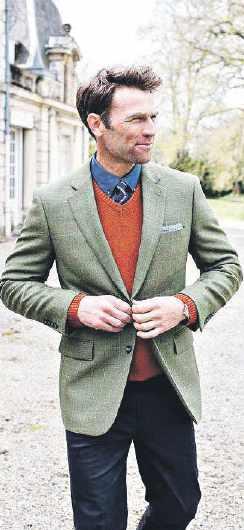









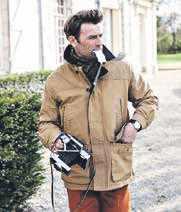




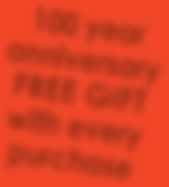


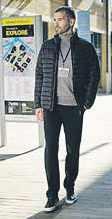


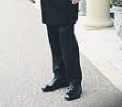










LONDON URGENT CARE CENTRE
Care. No Appointment Needed.
Walk-in urgent care for adults and children
On-site X-ray, MRI and other diagnositics
Private, discreet, and immediate treatment
Experienced urgent care doctors
Easy to access, free parking on-site




